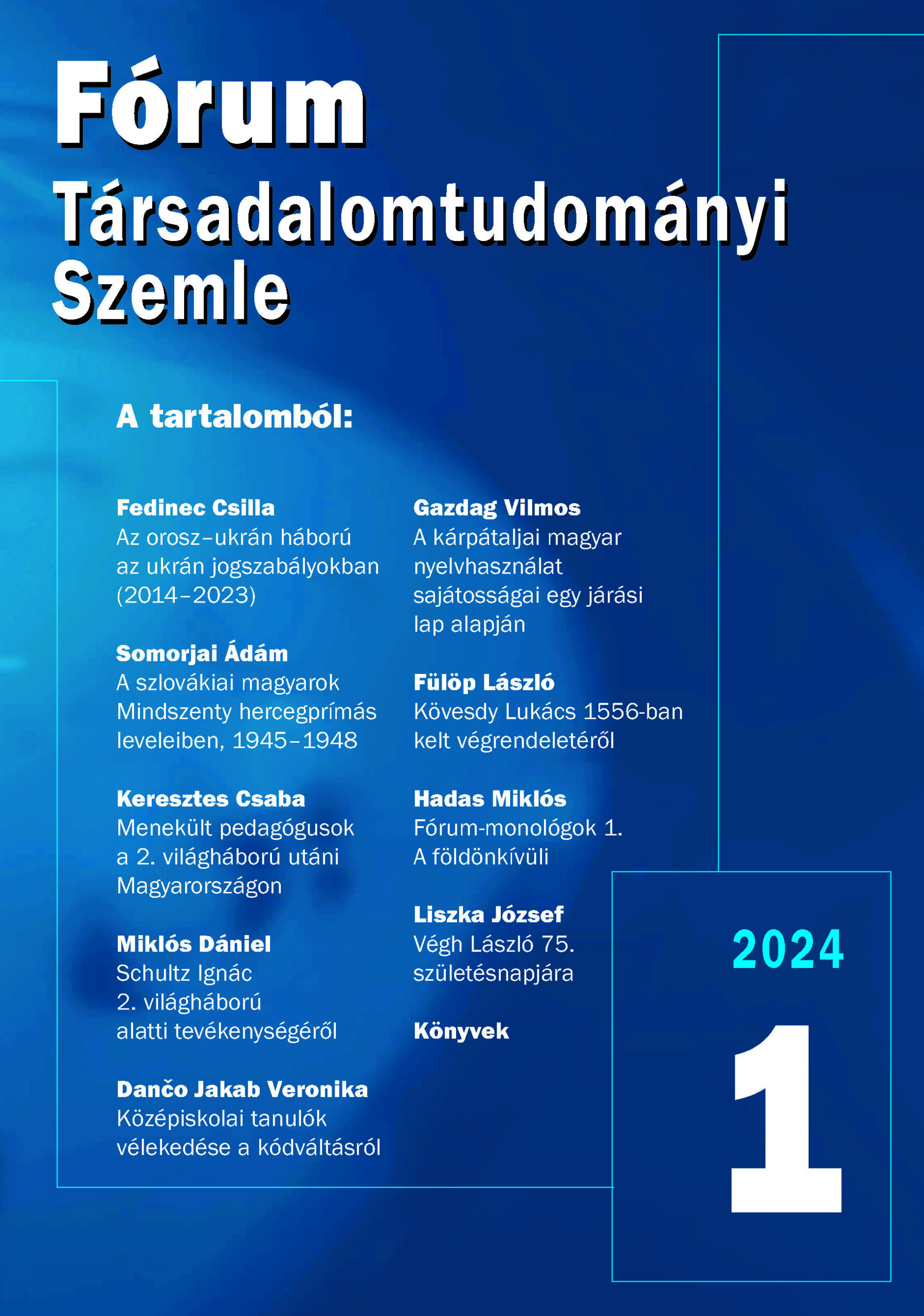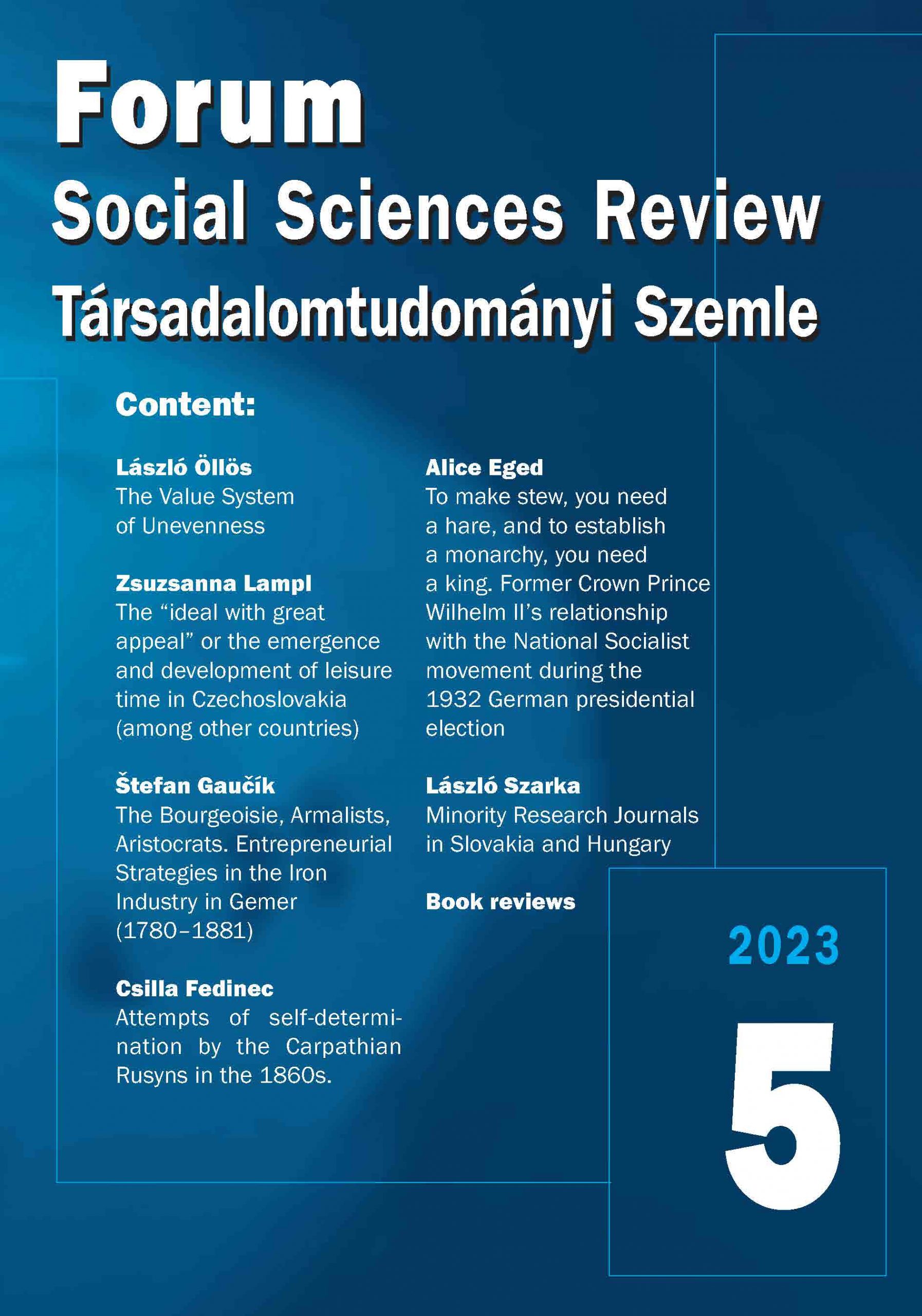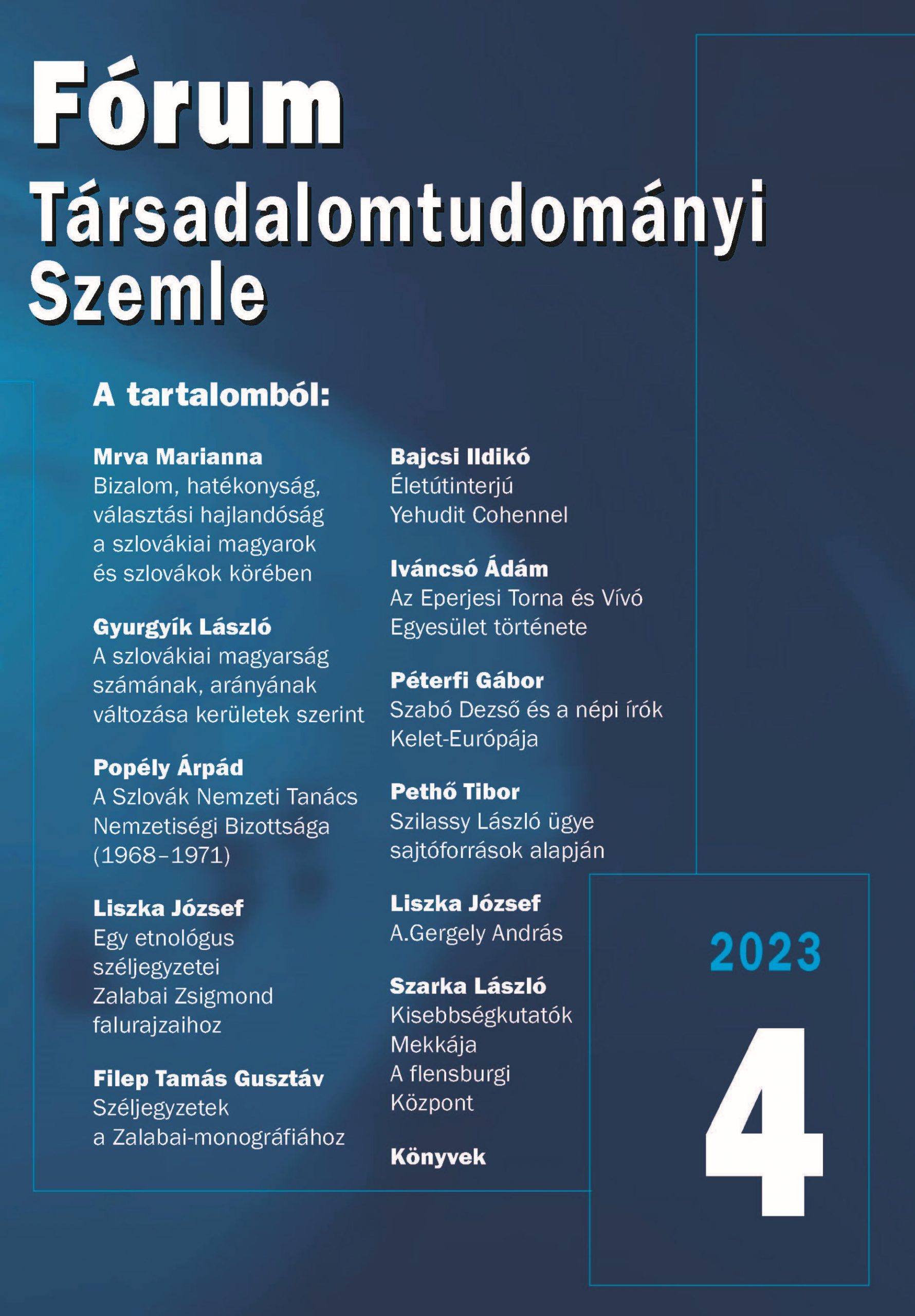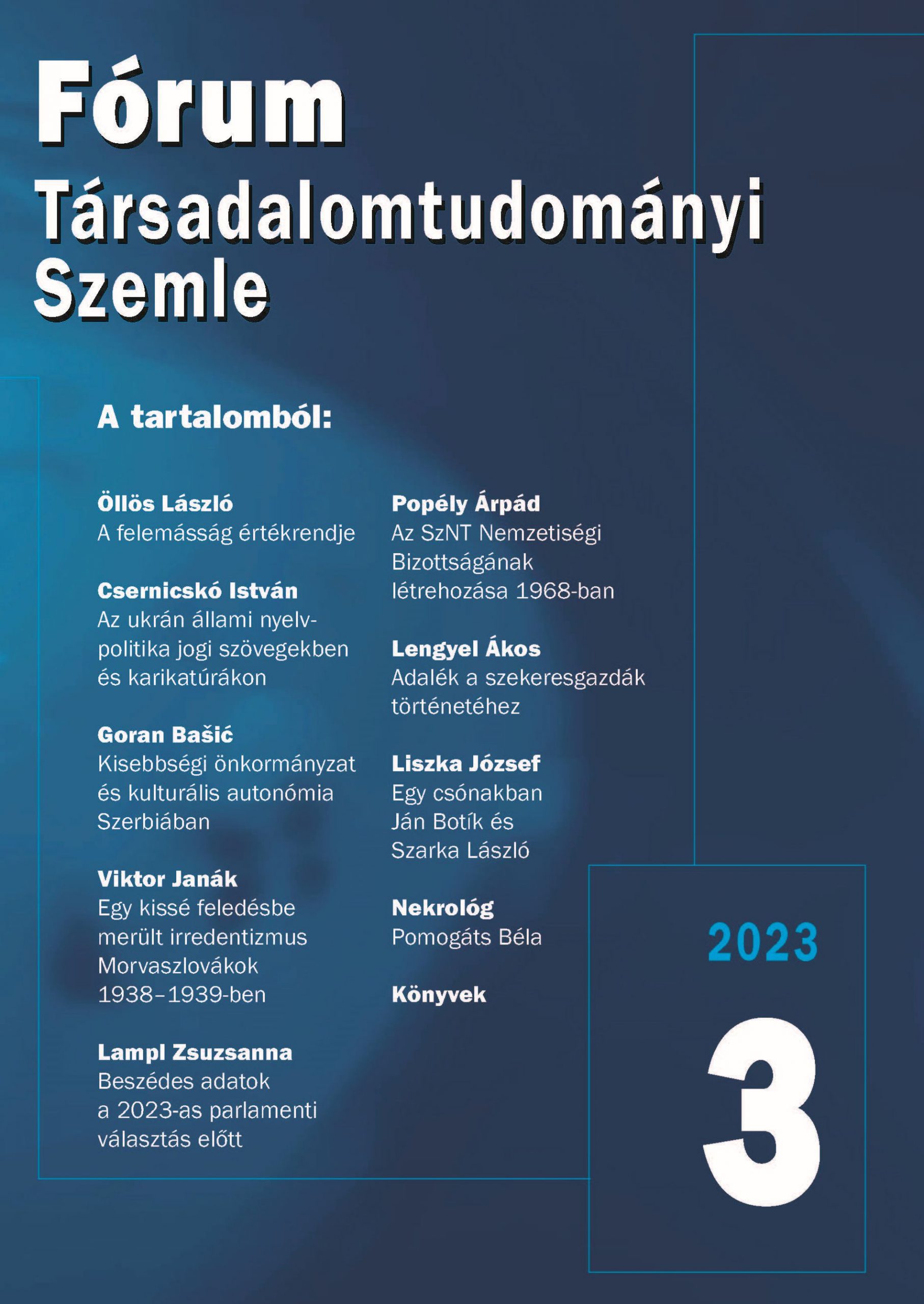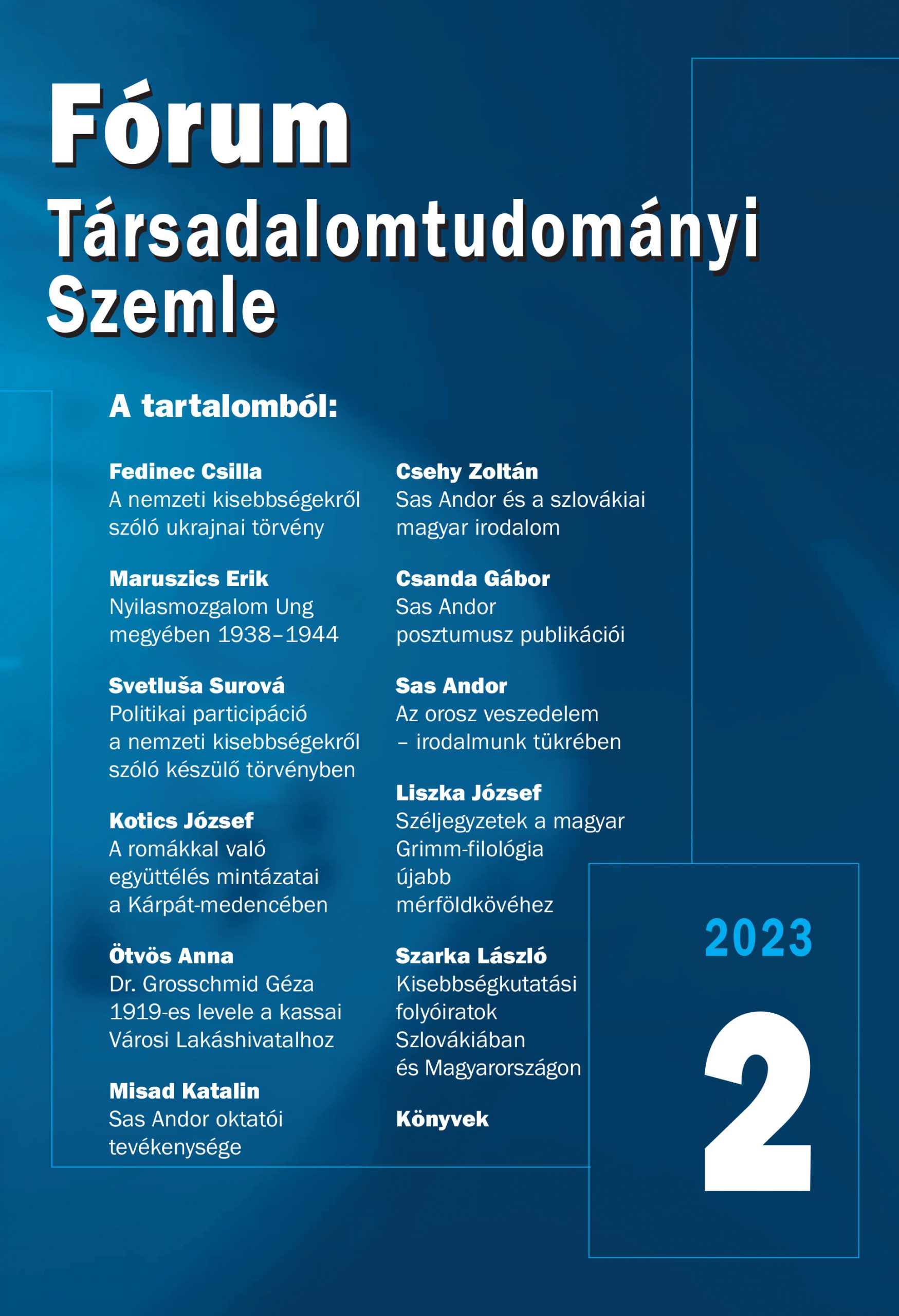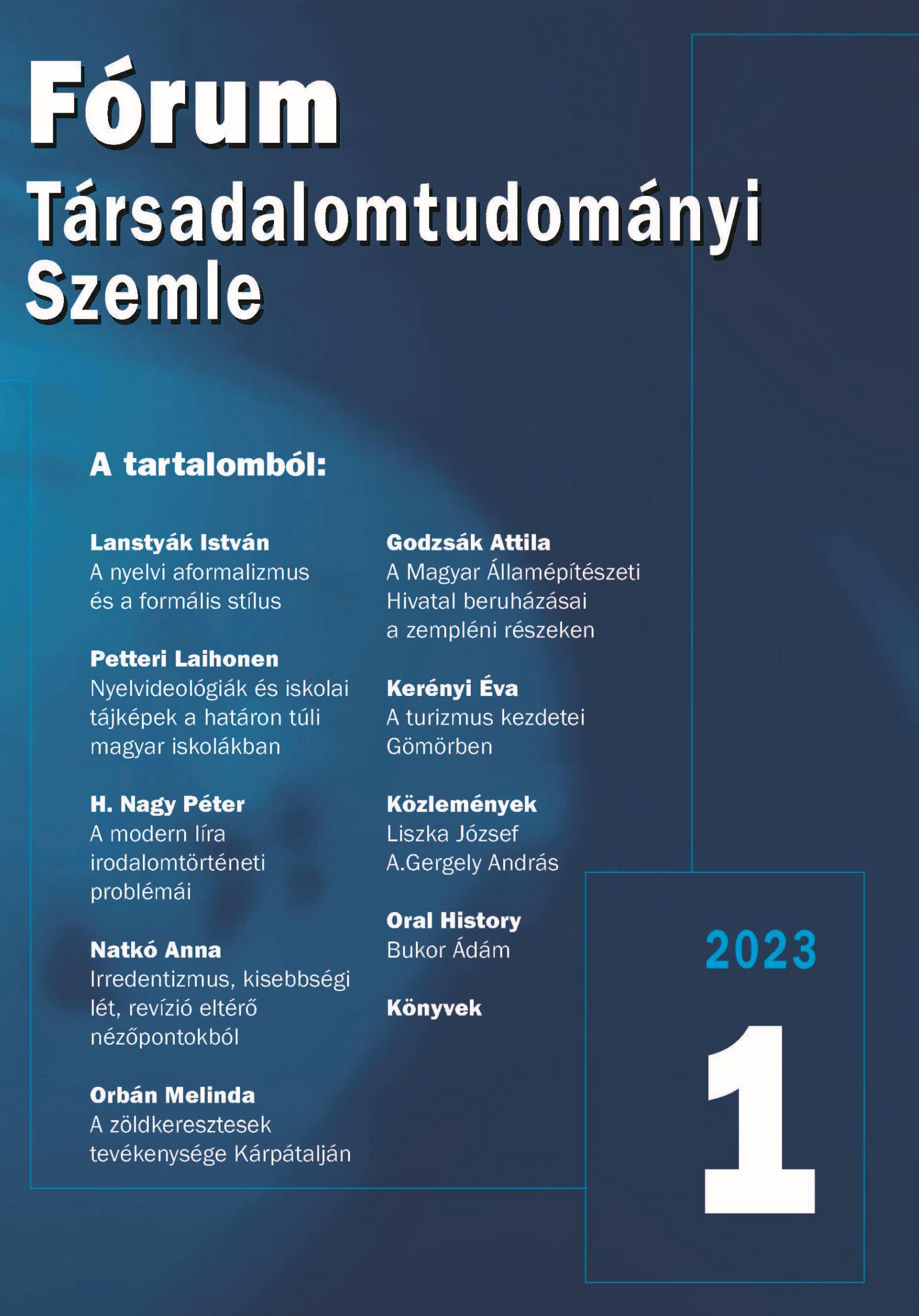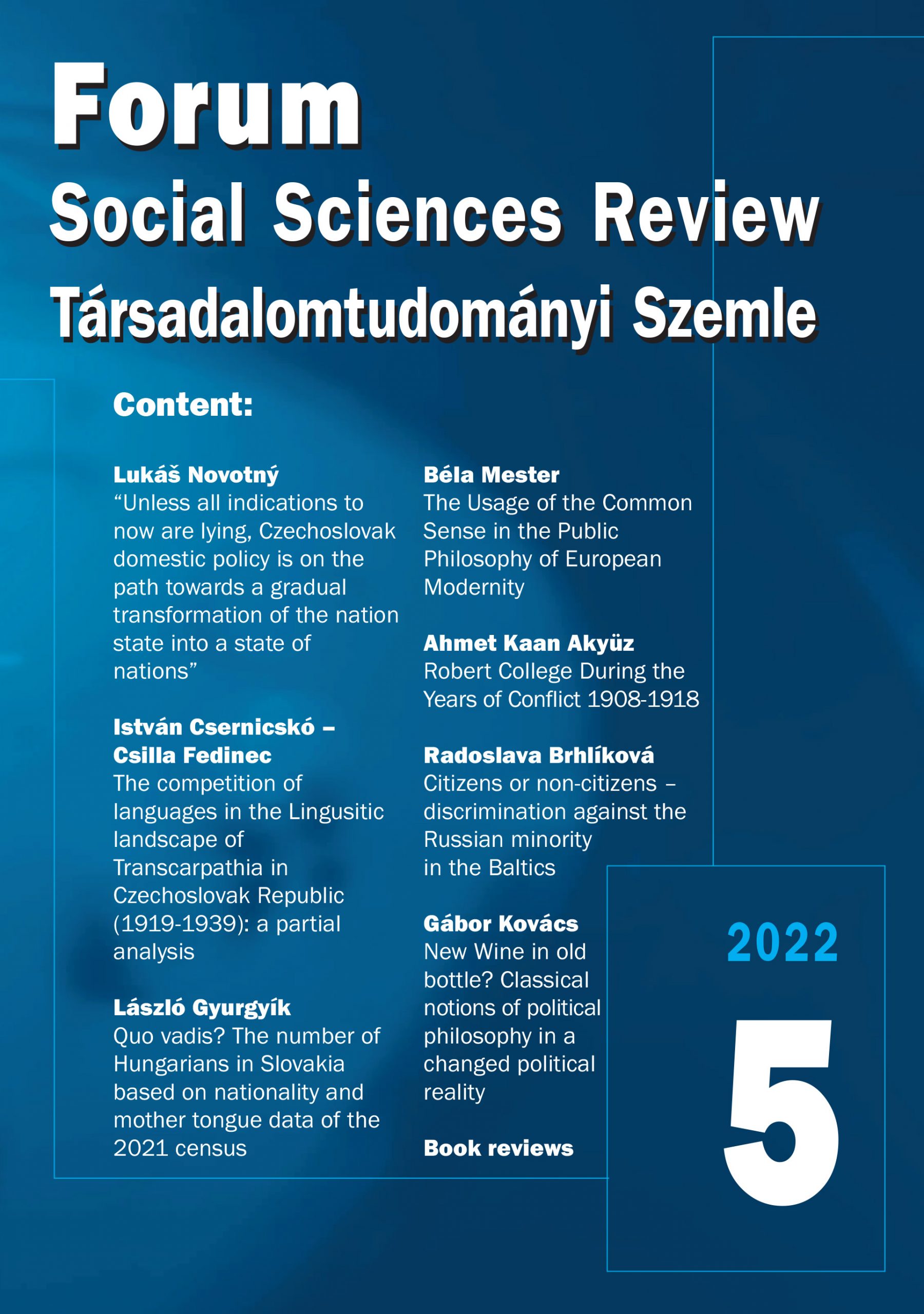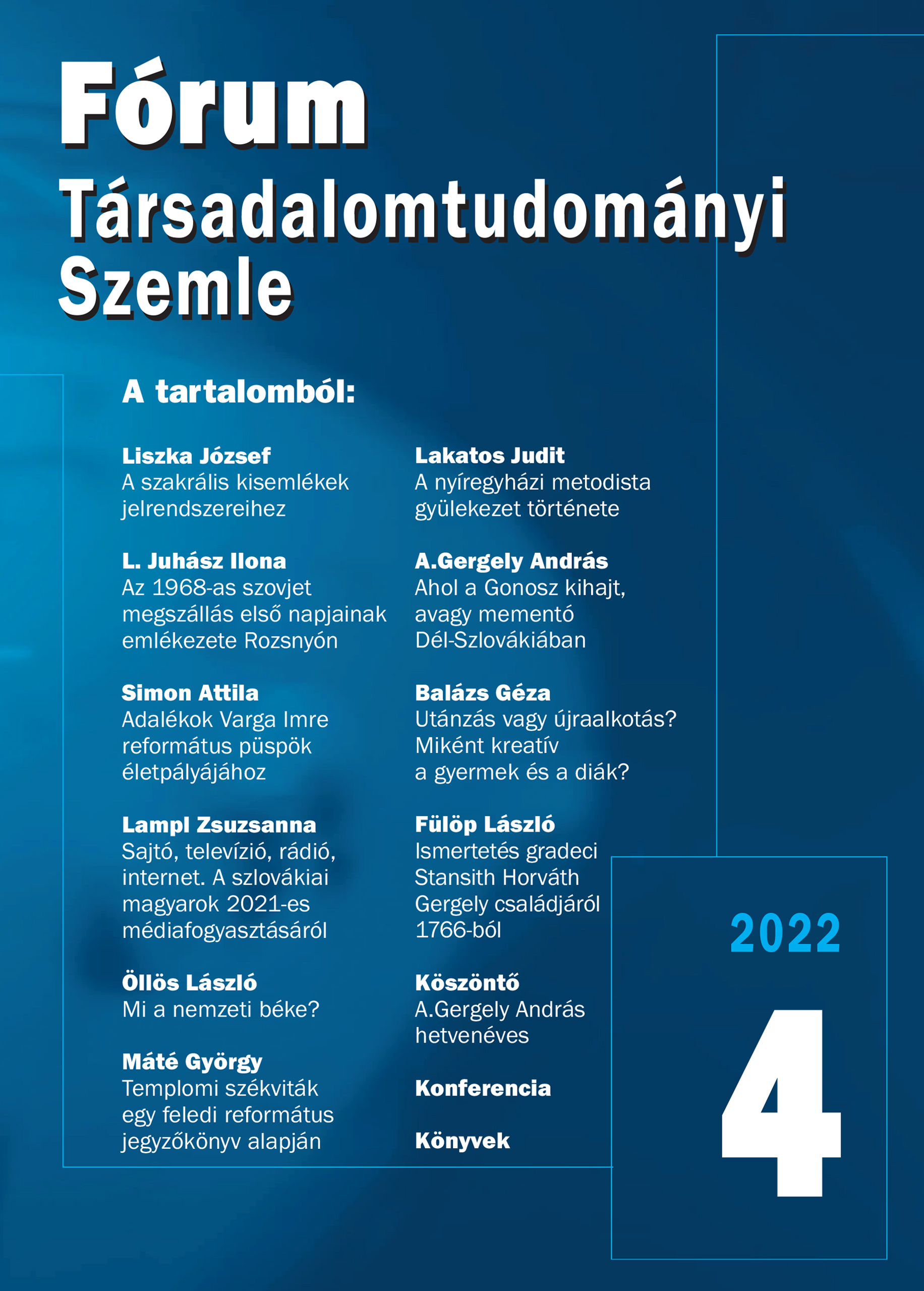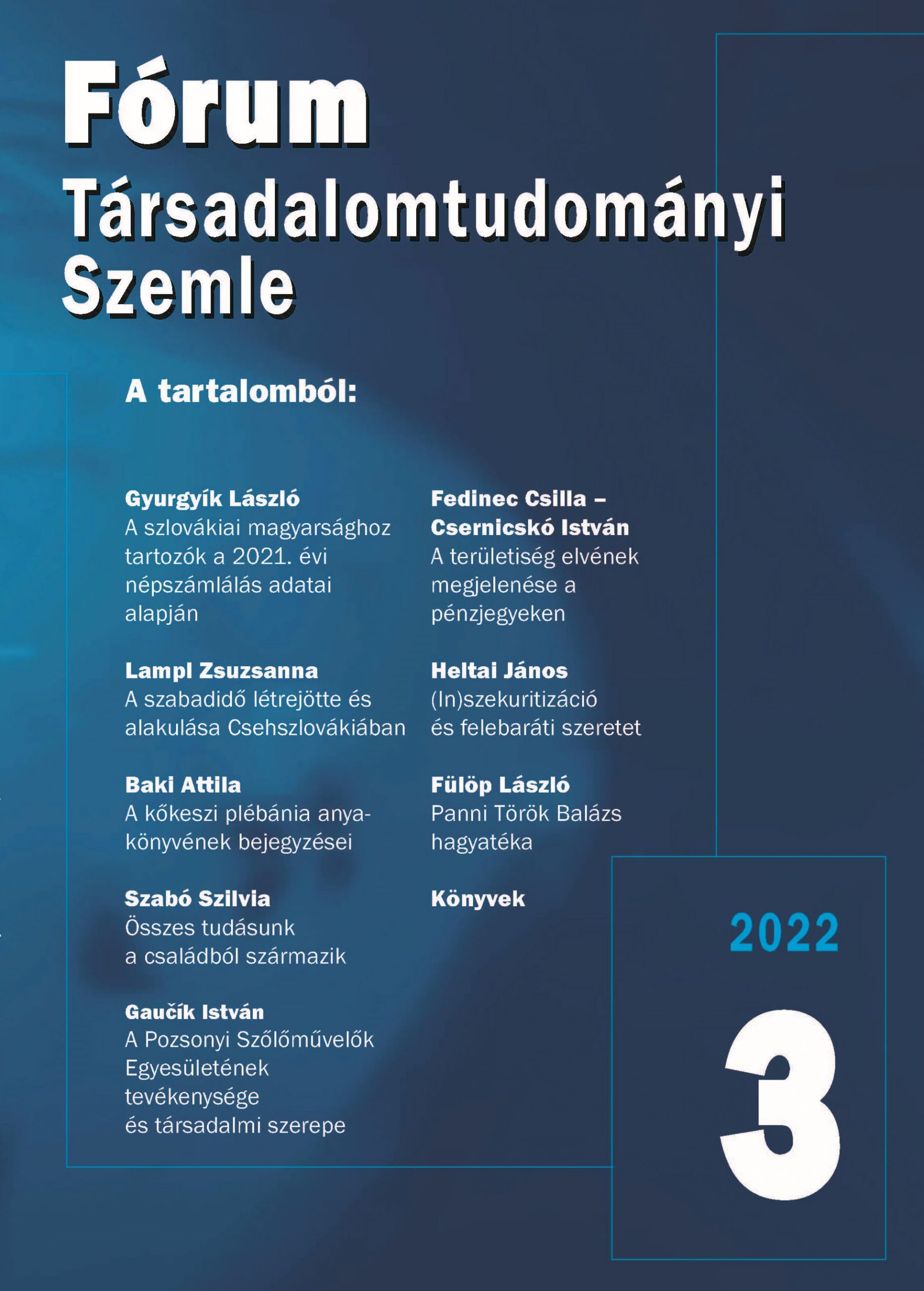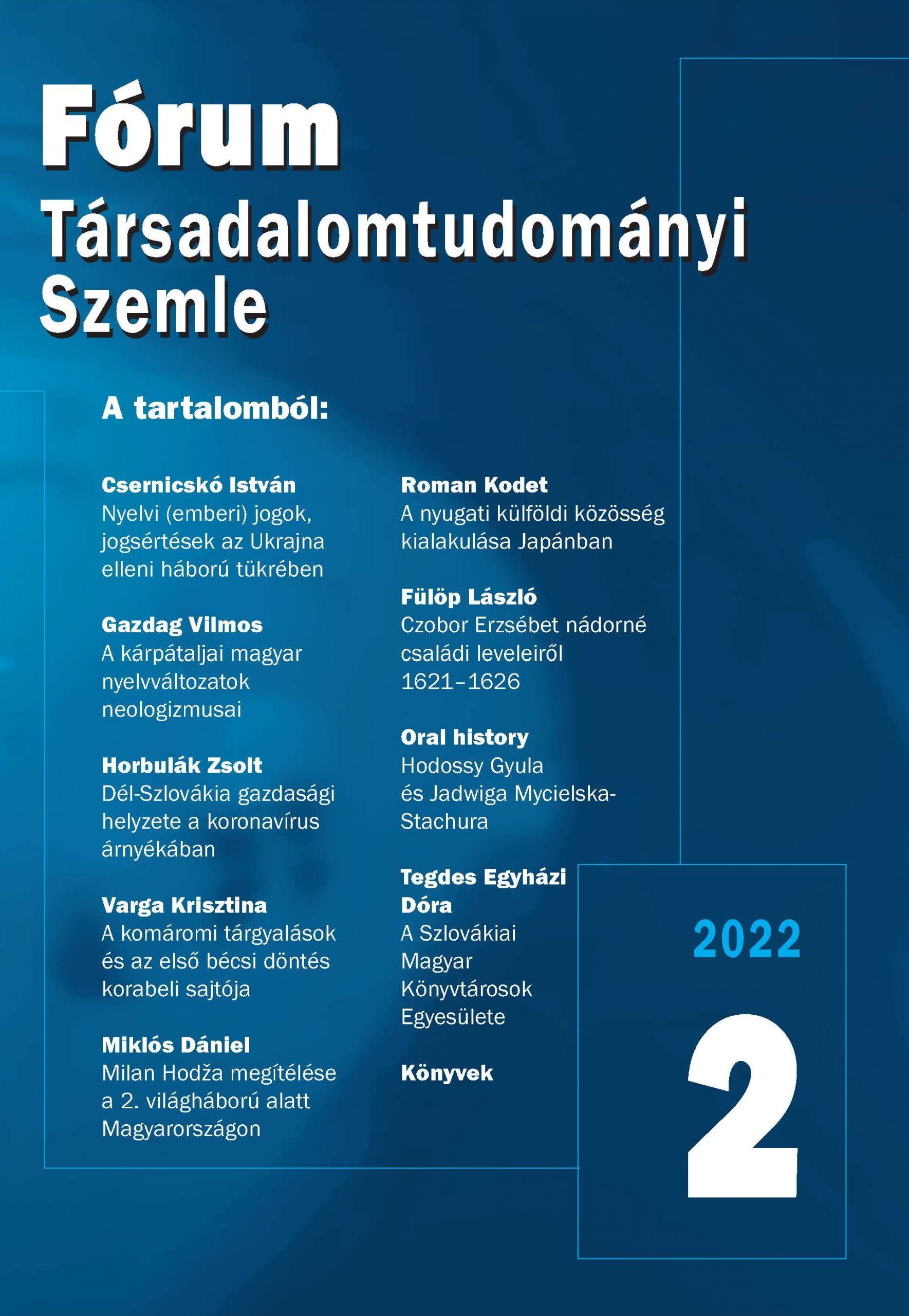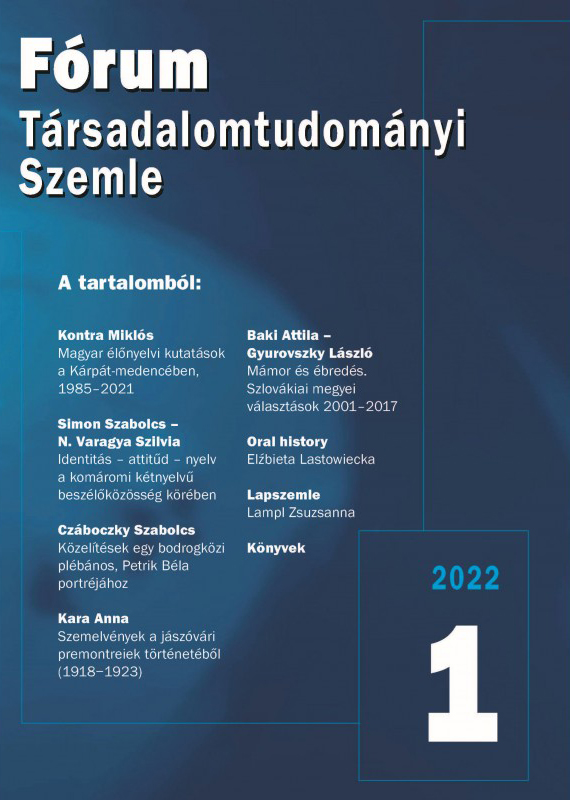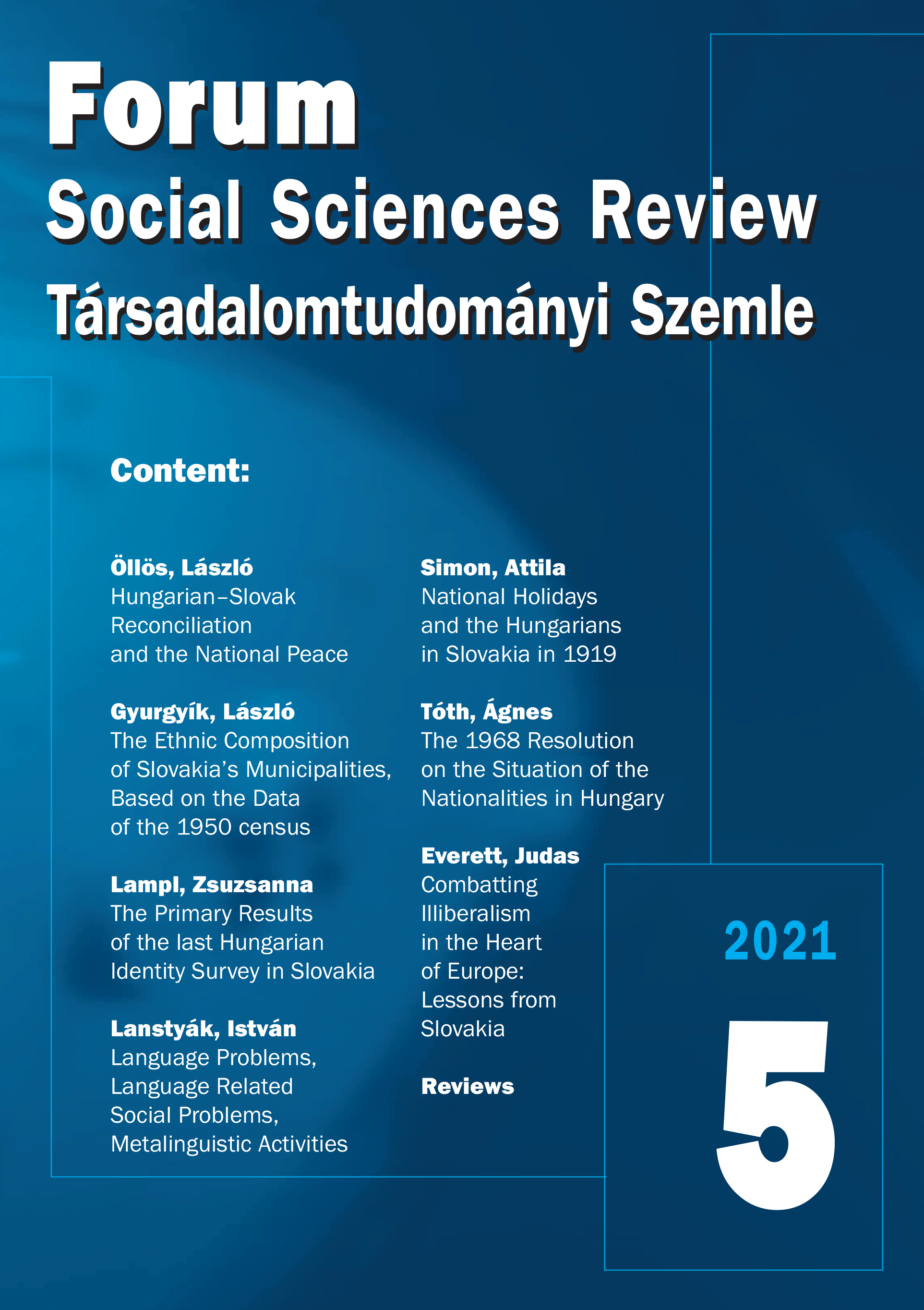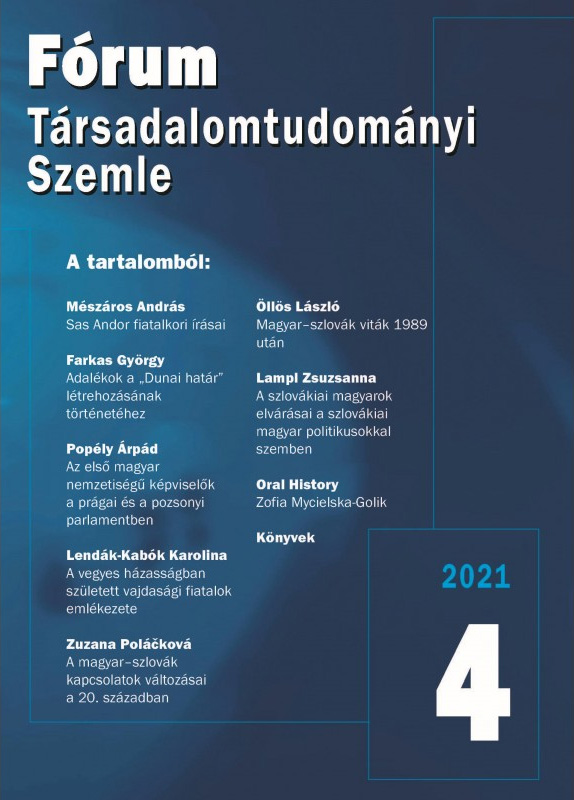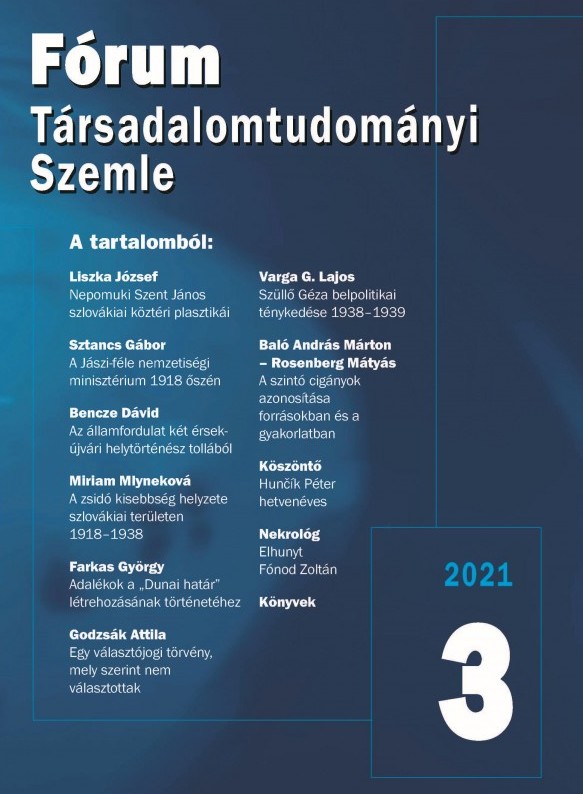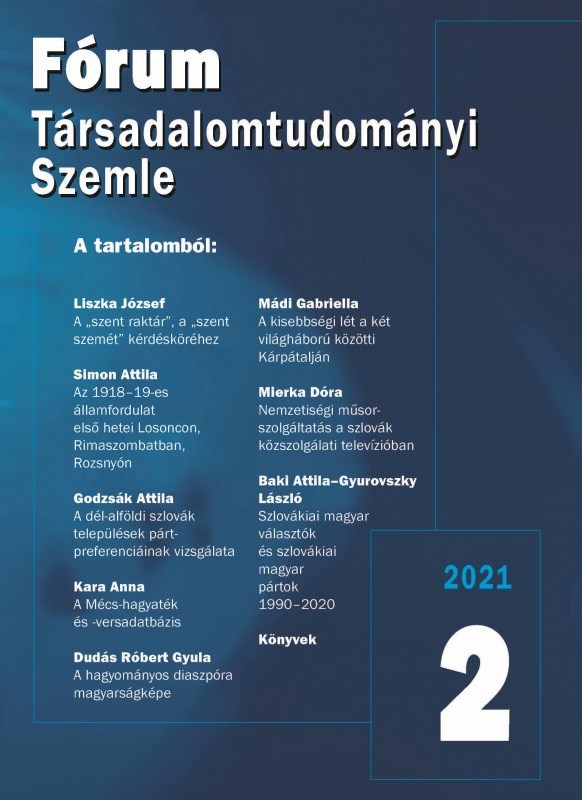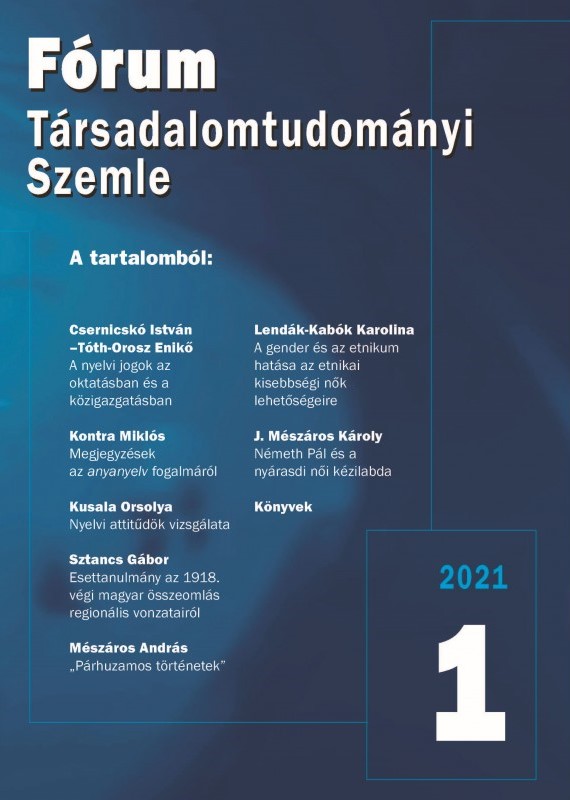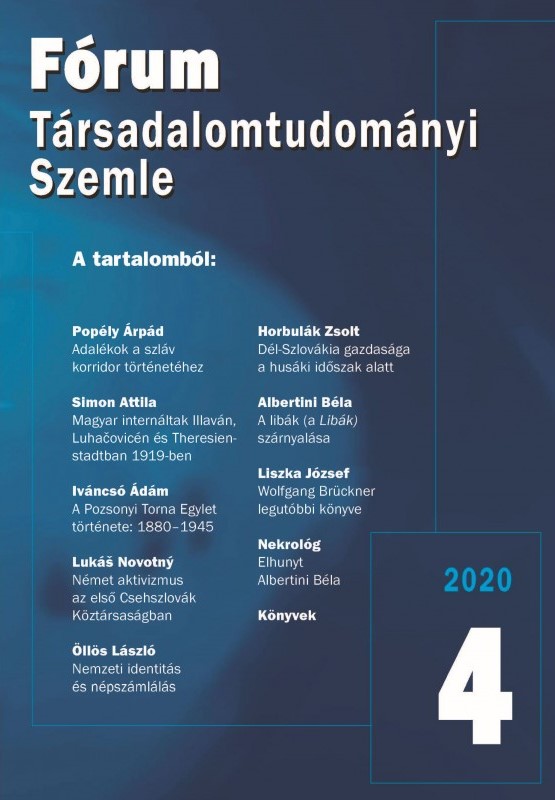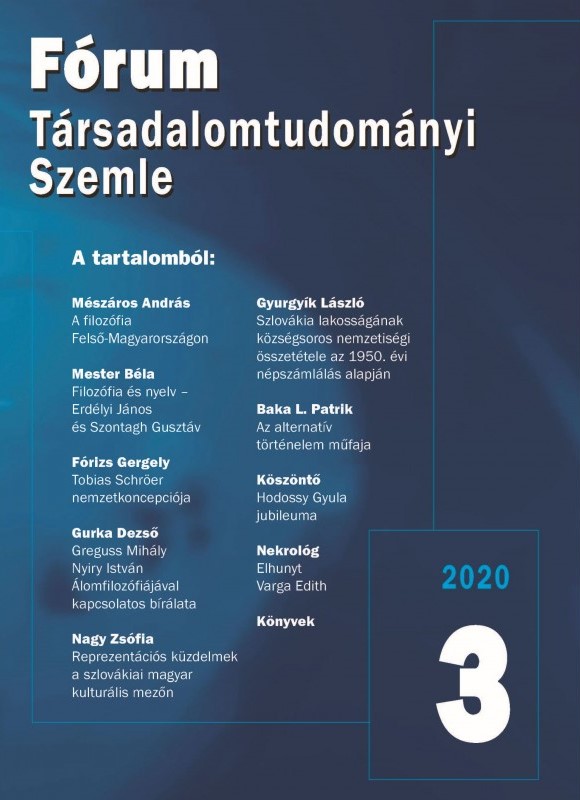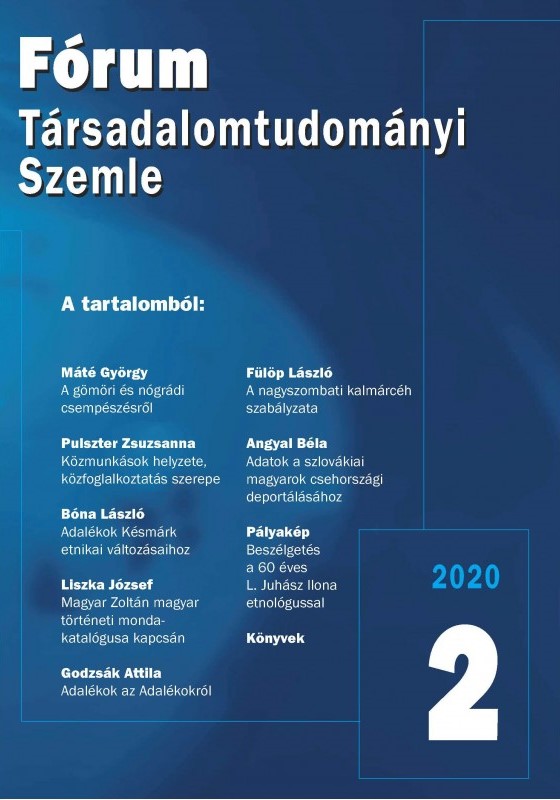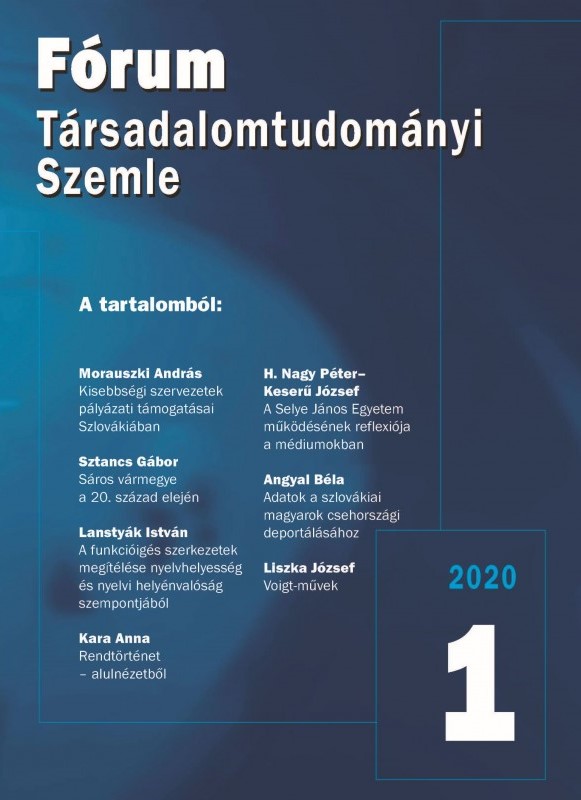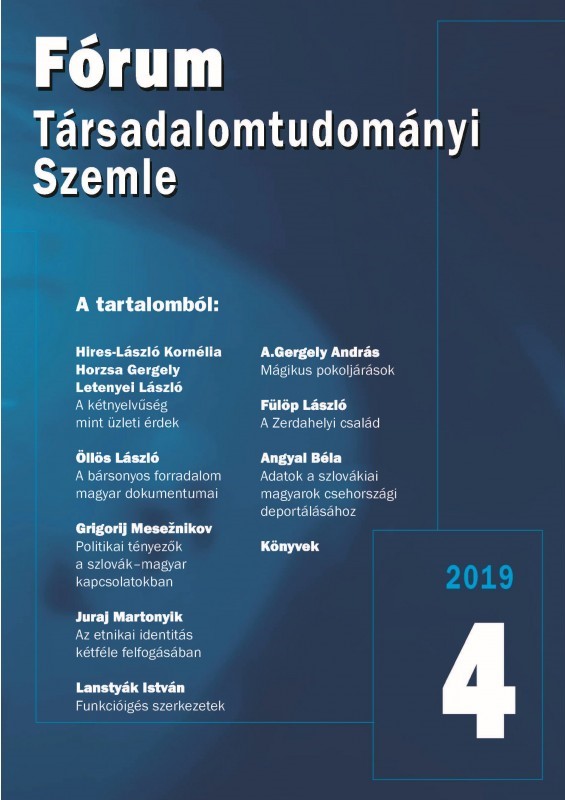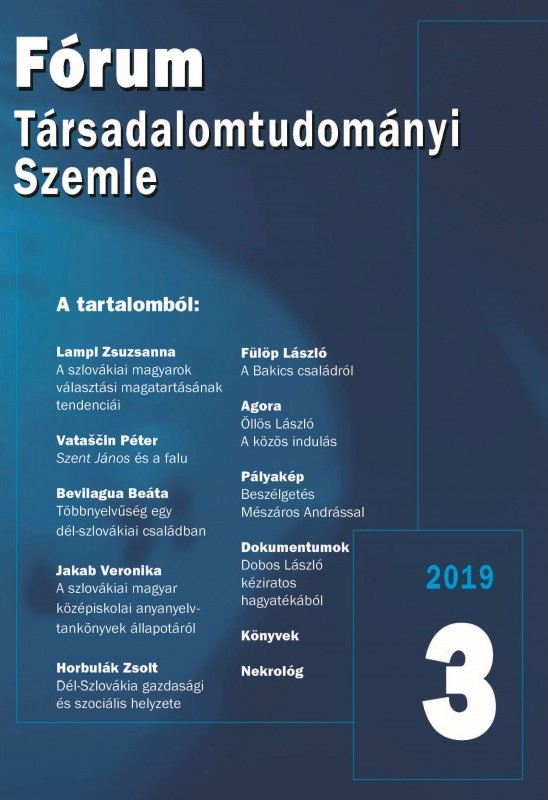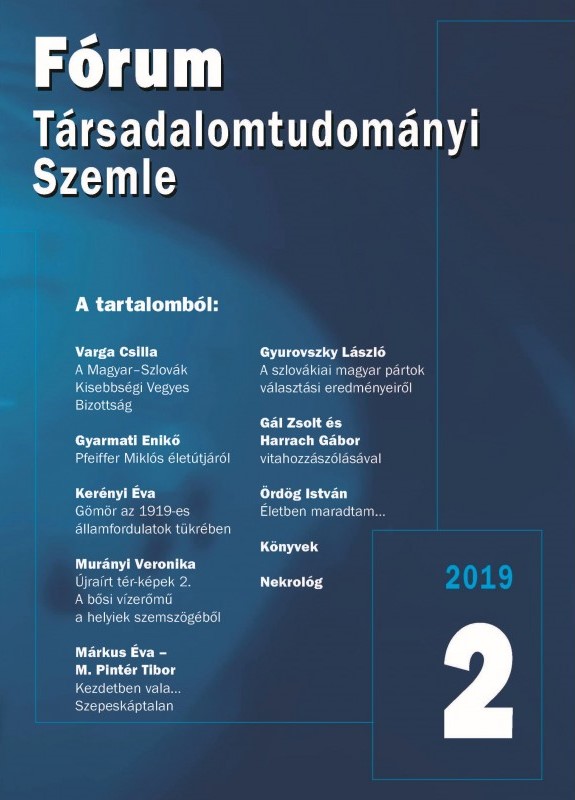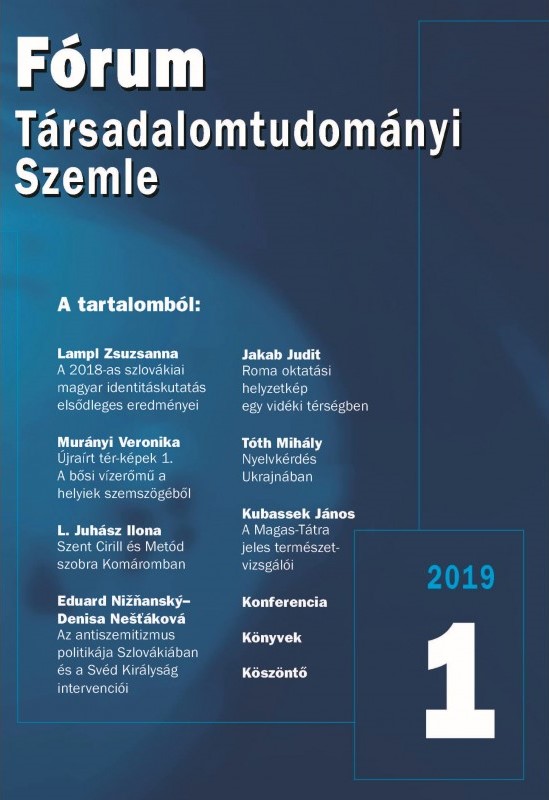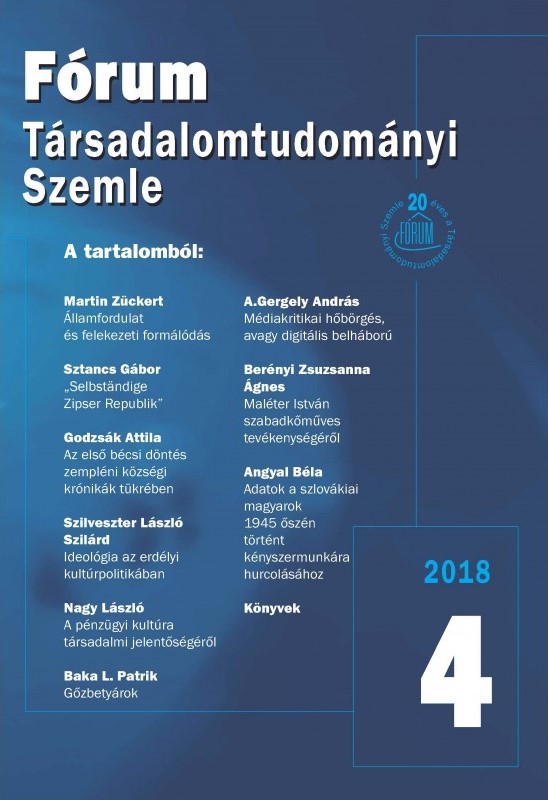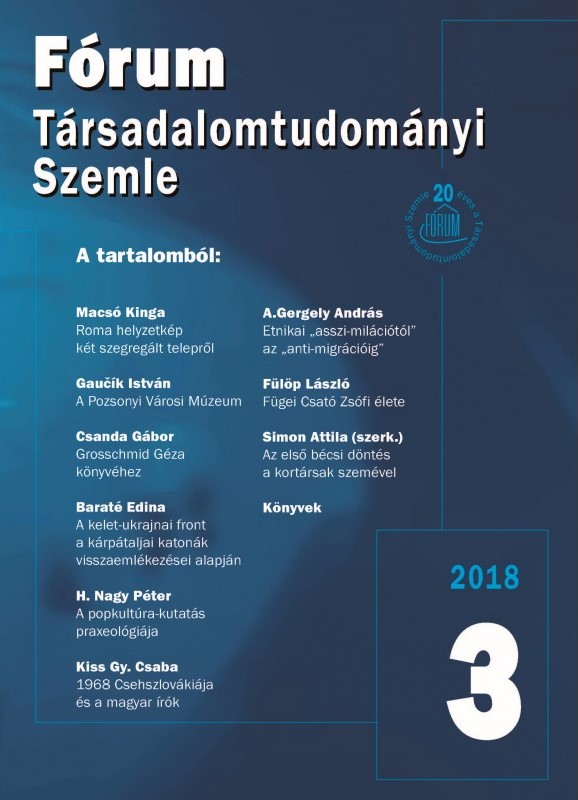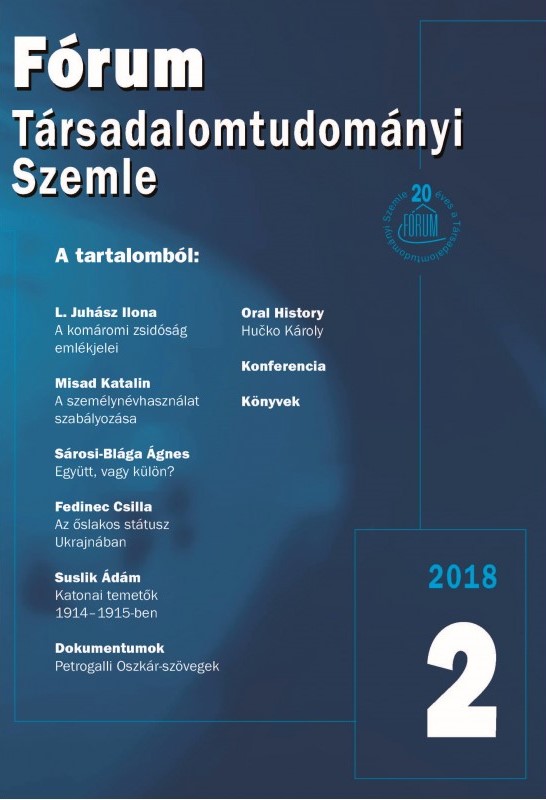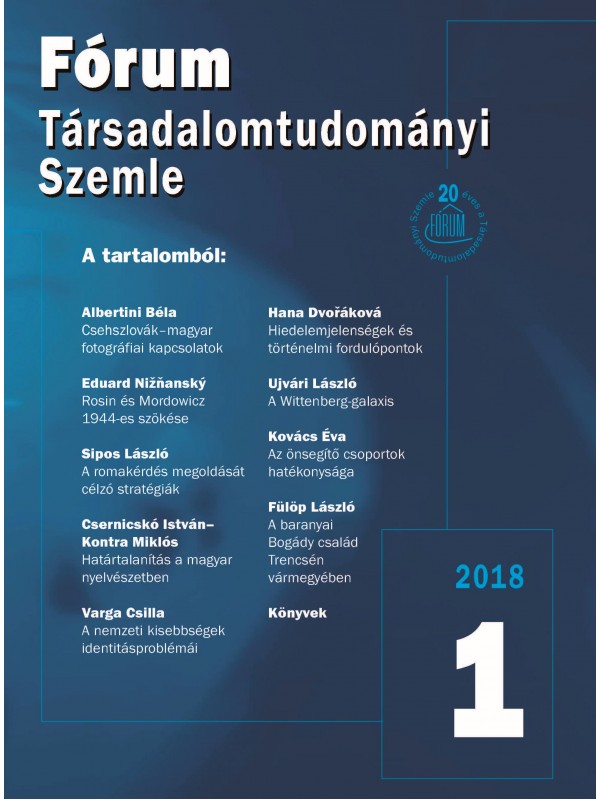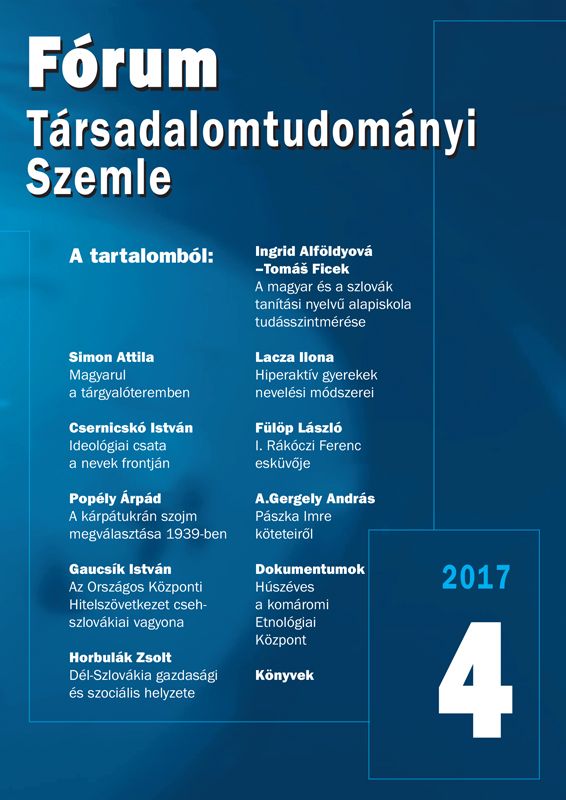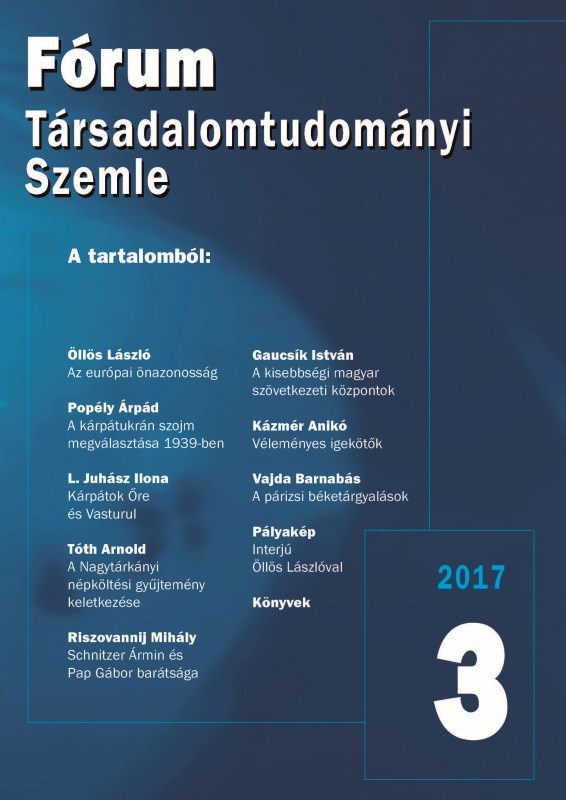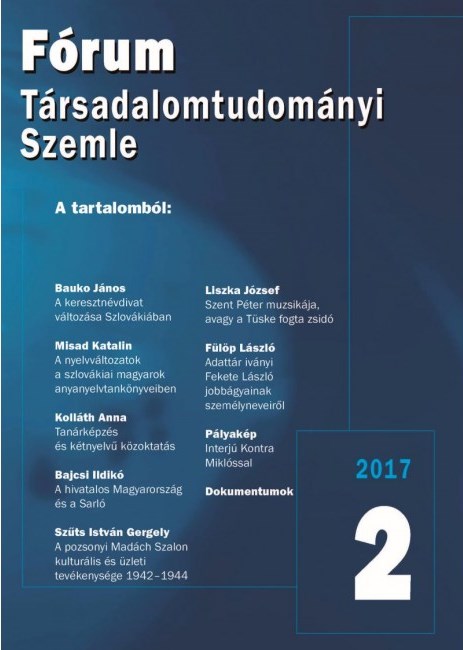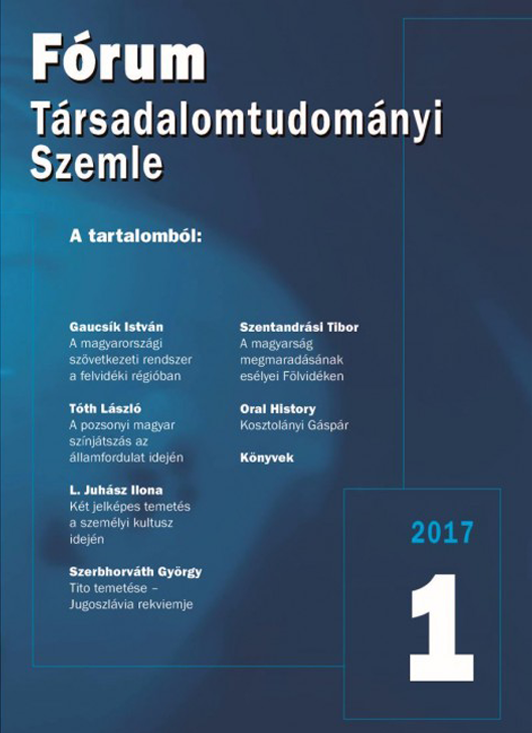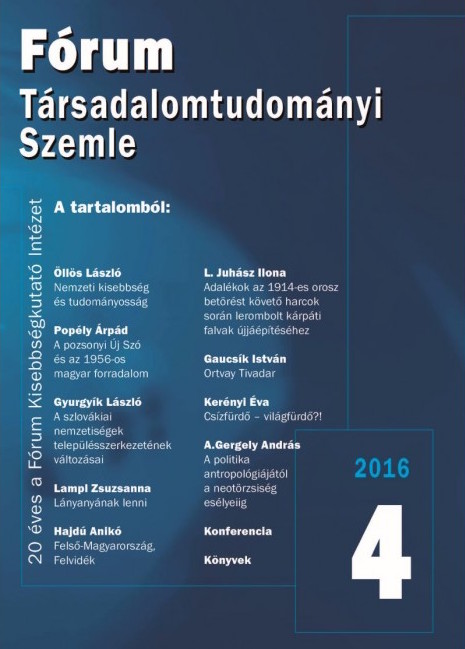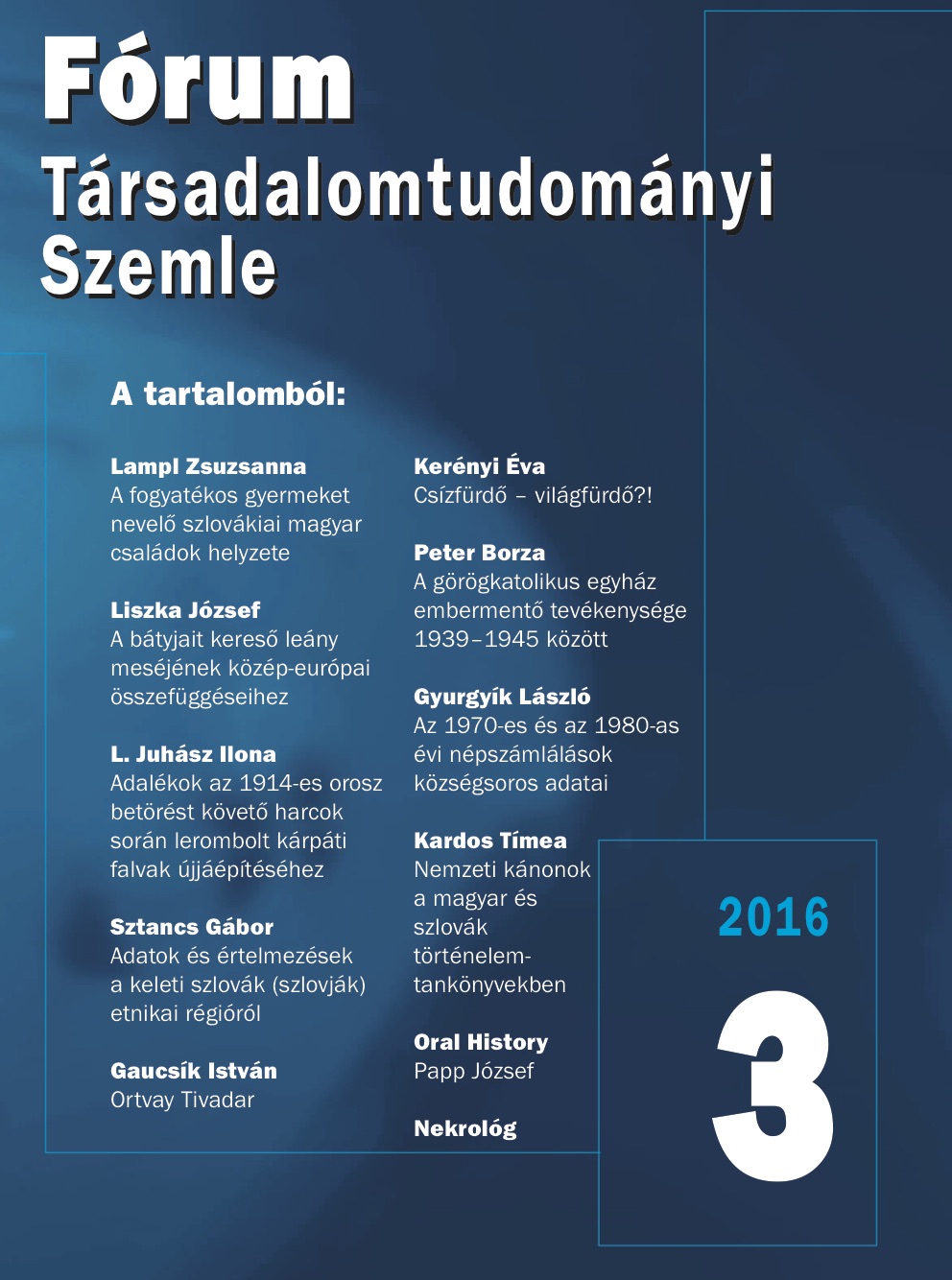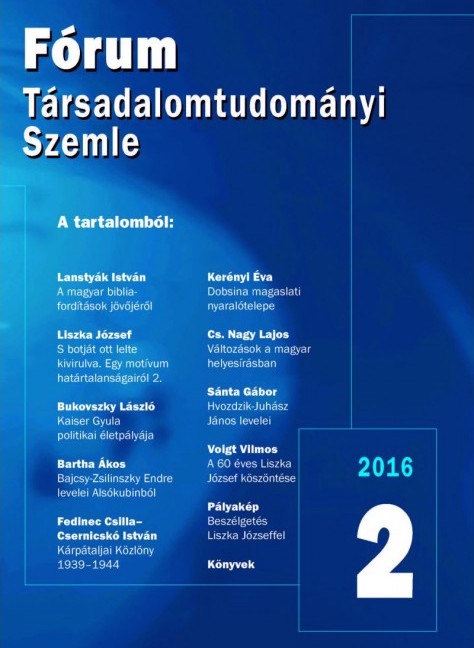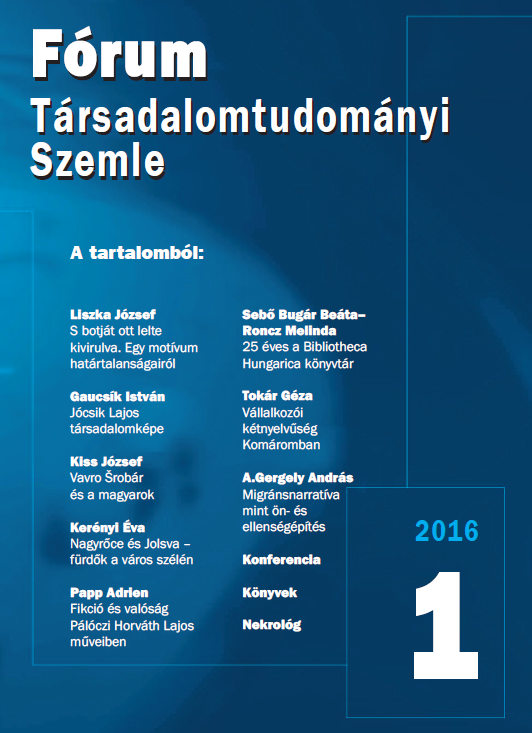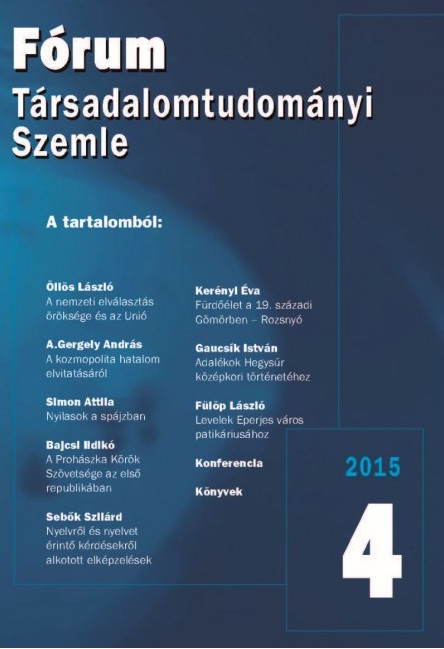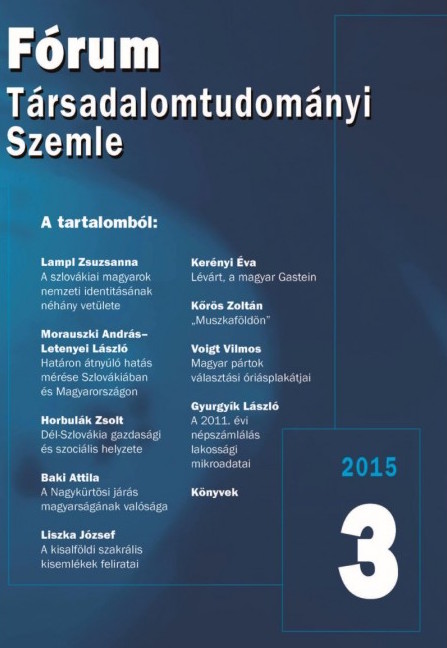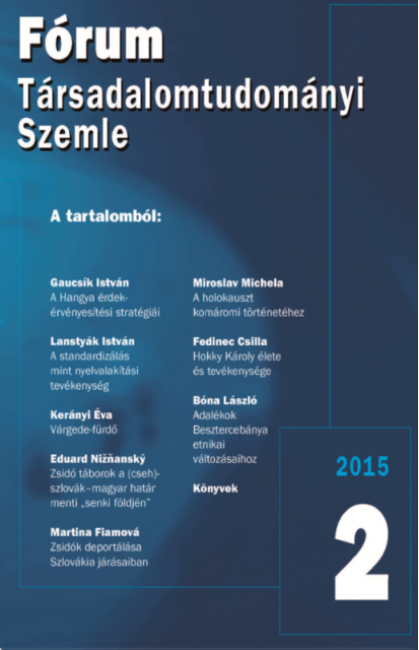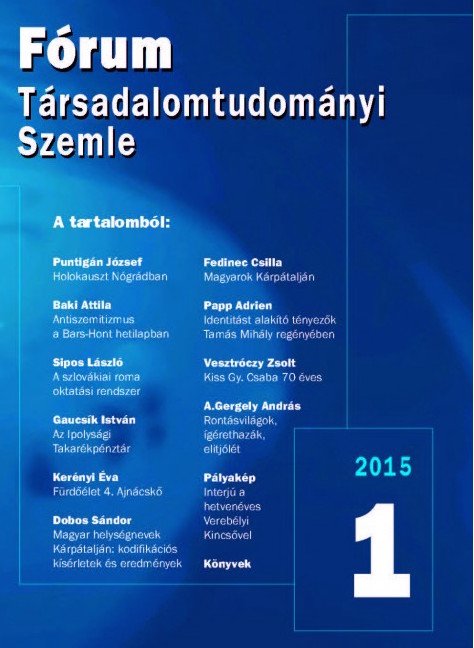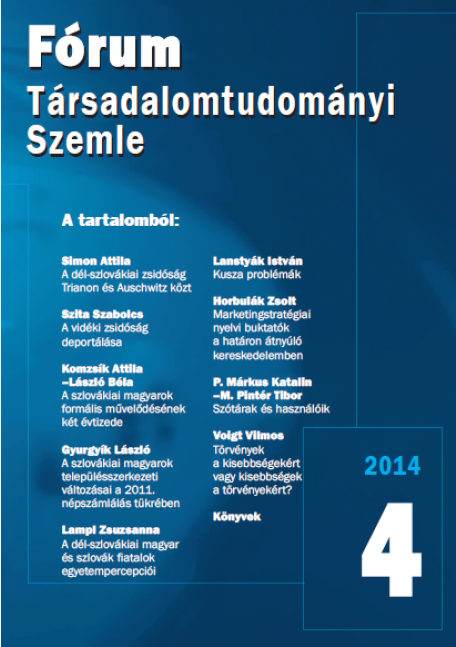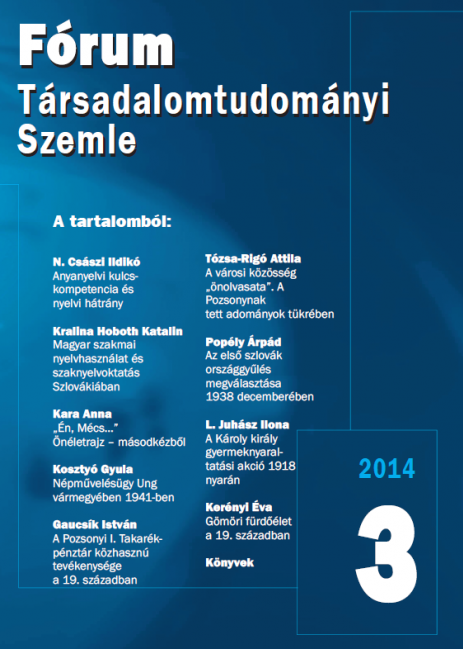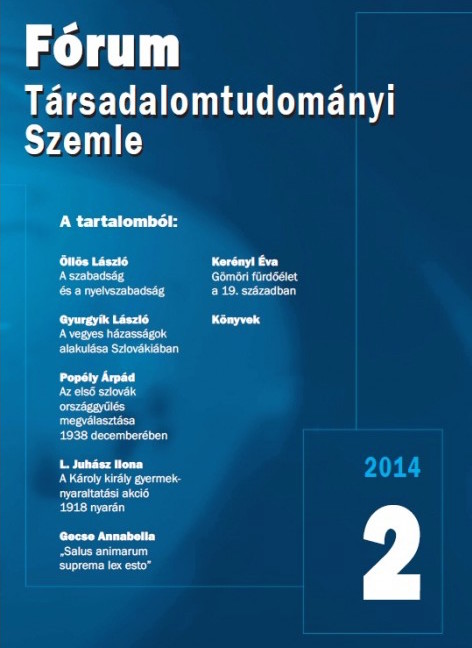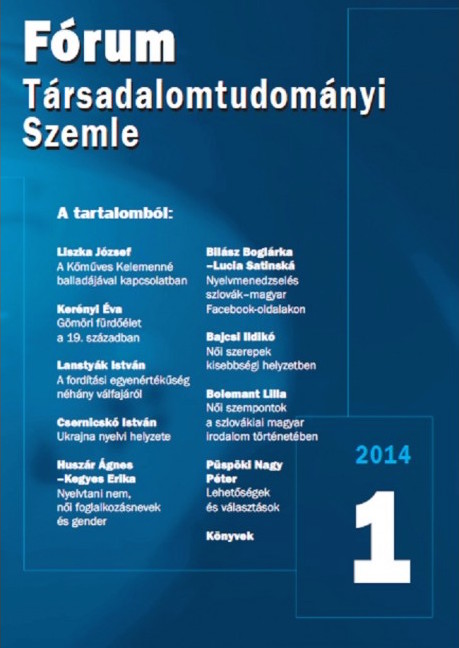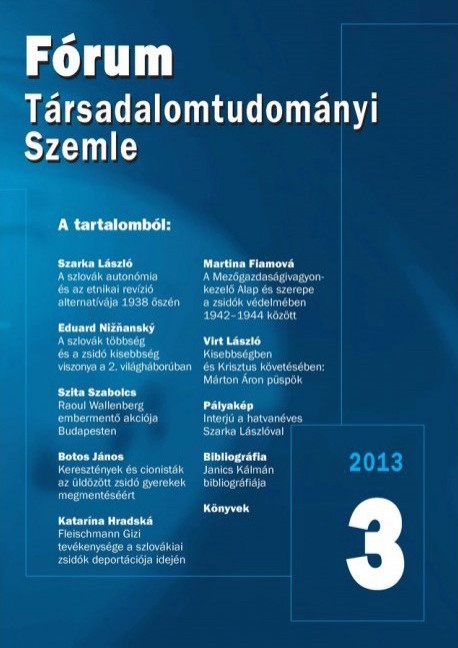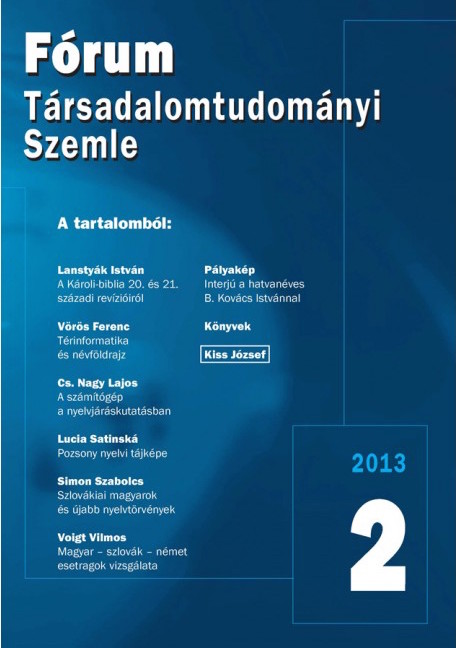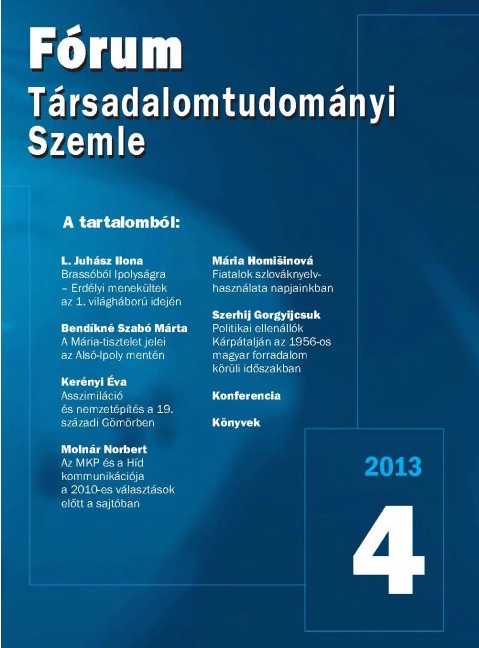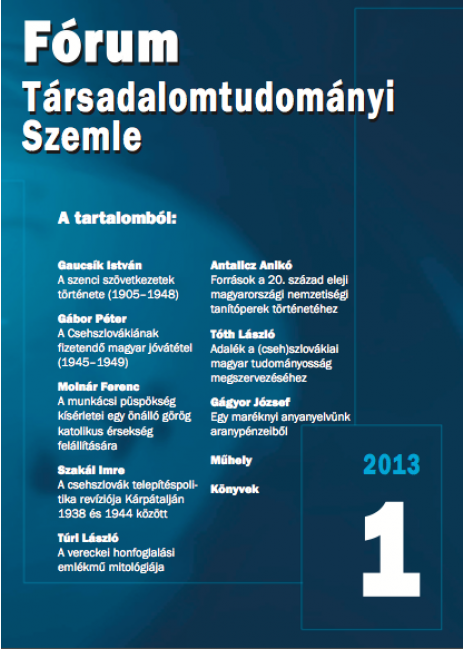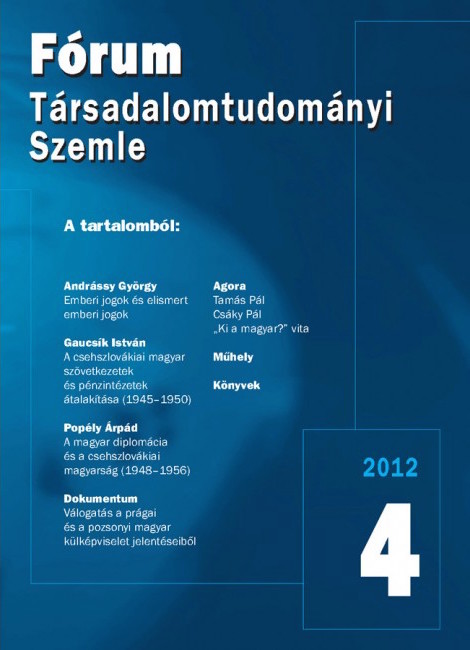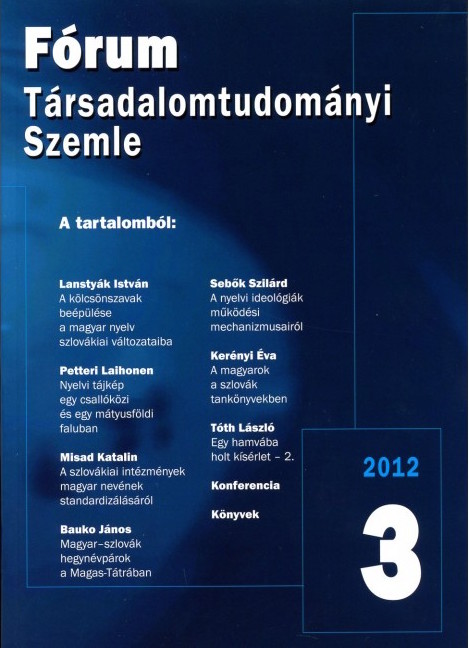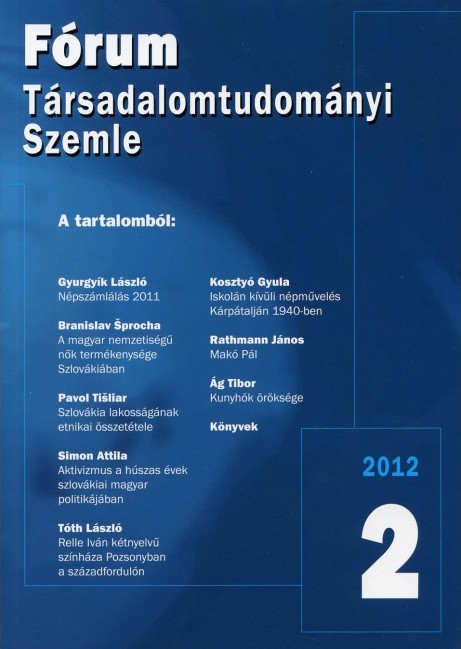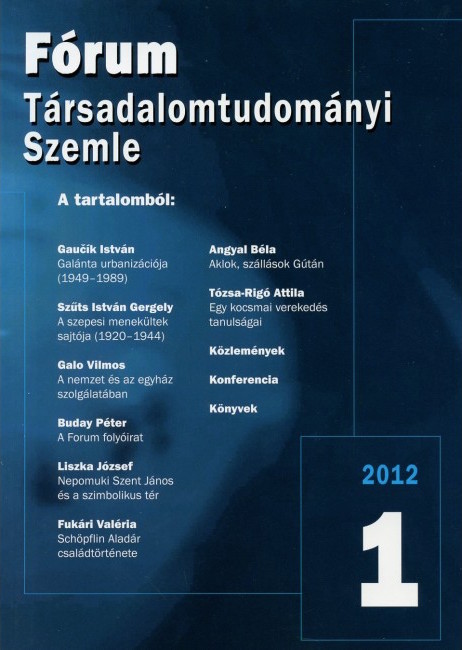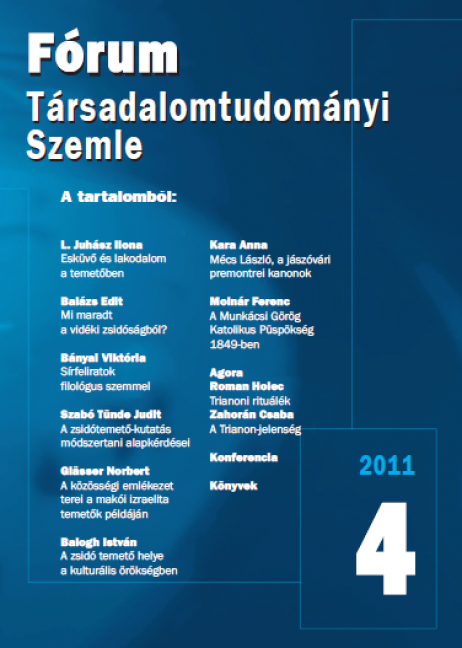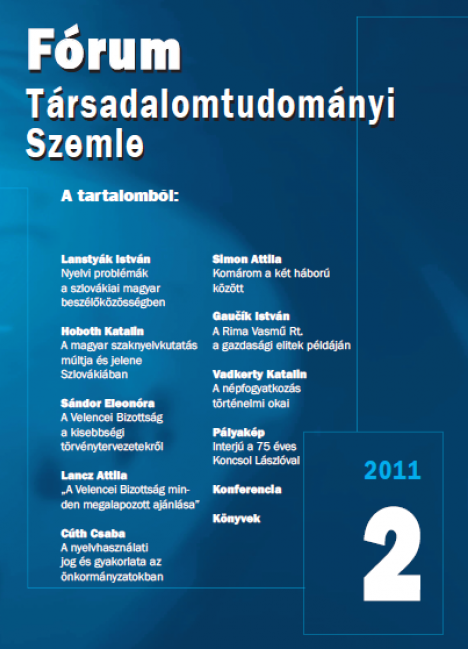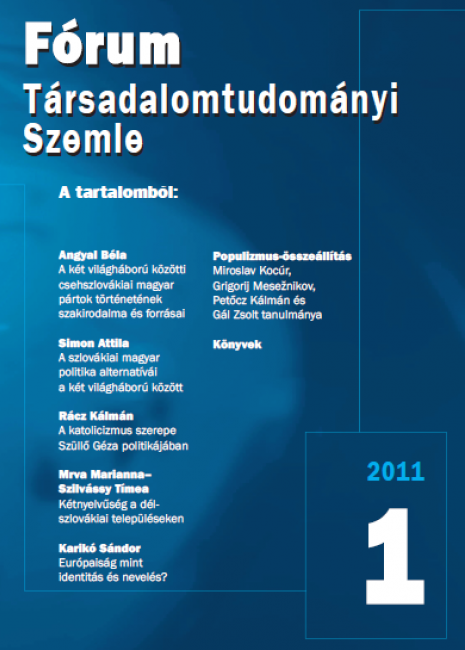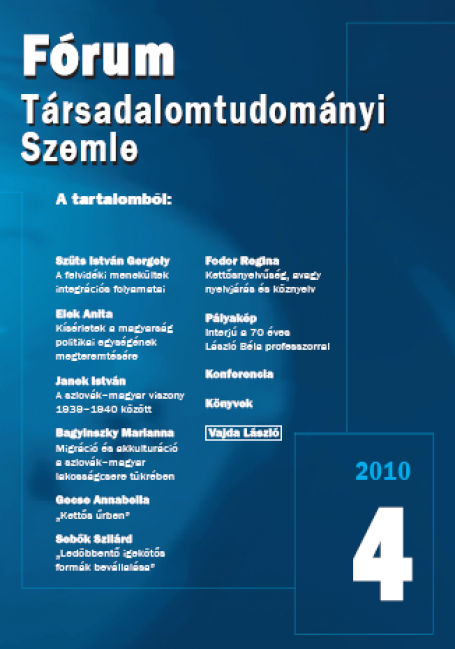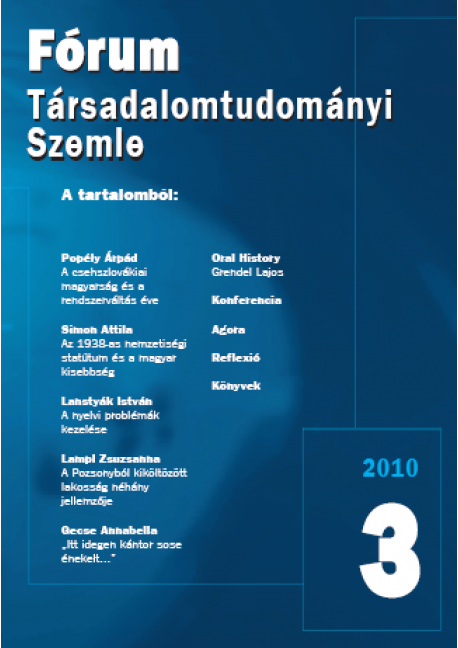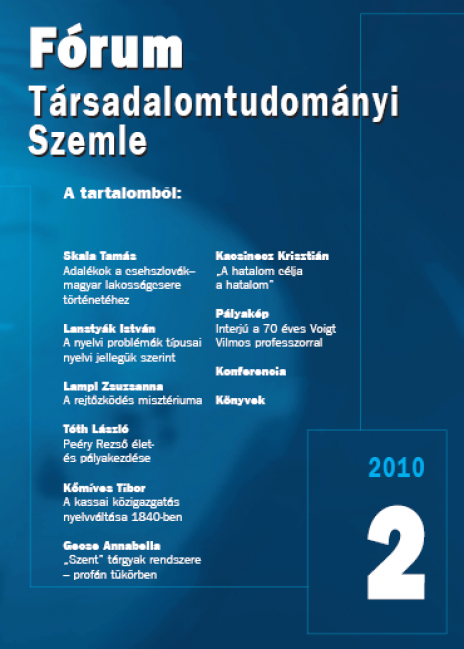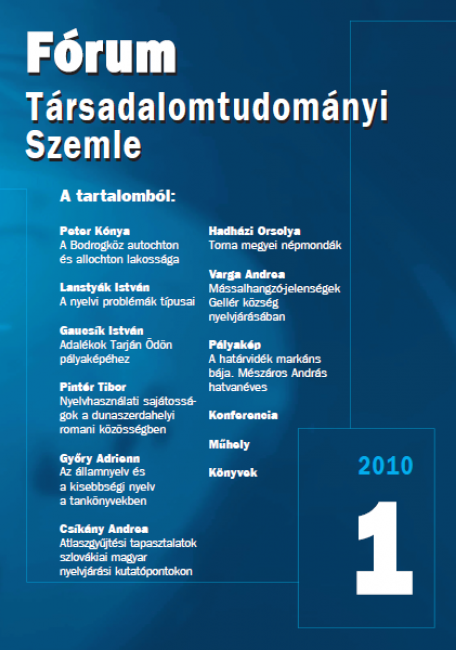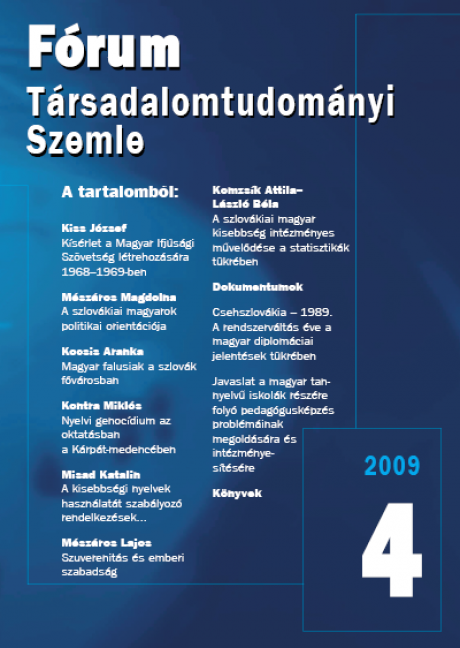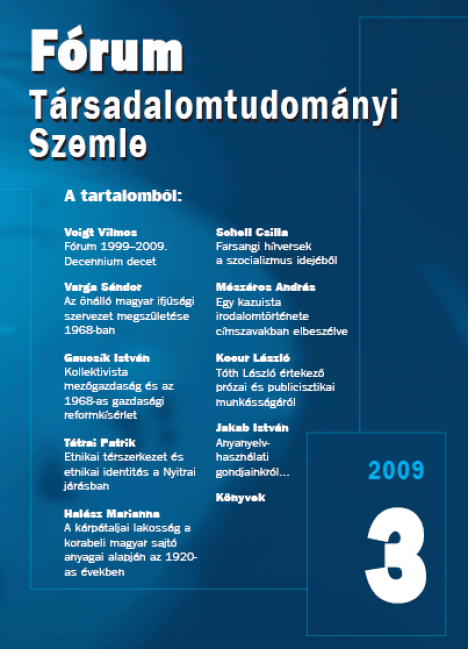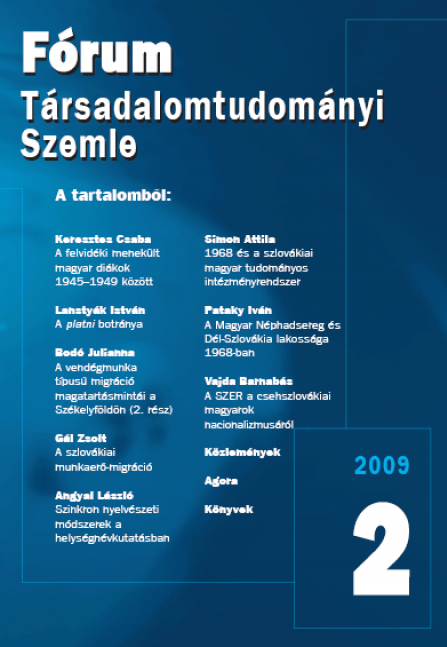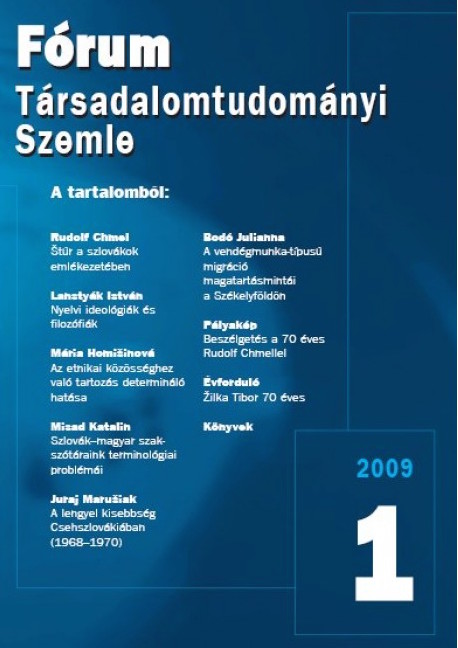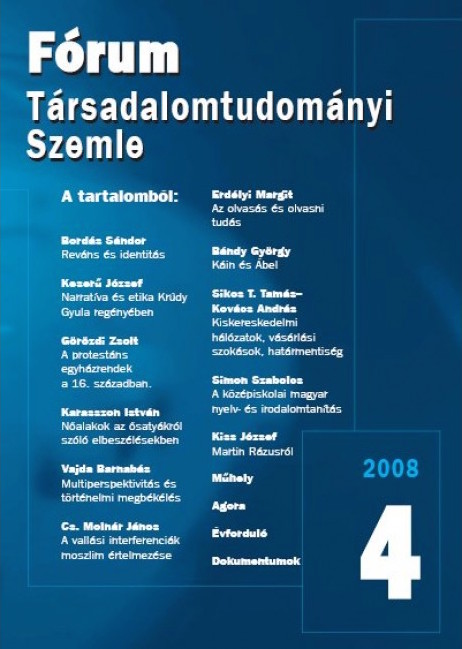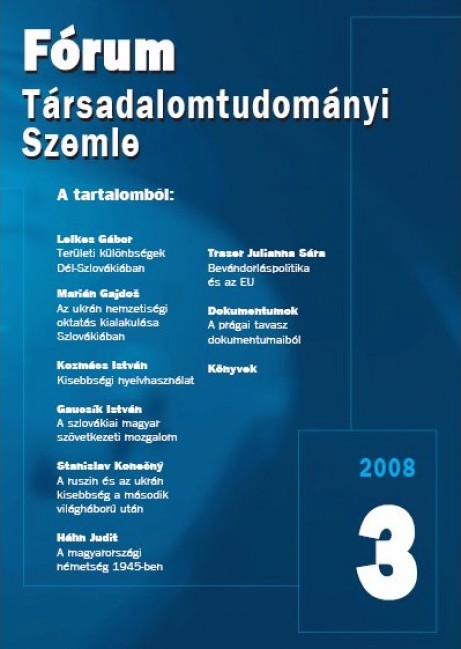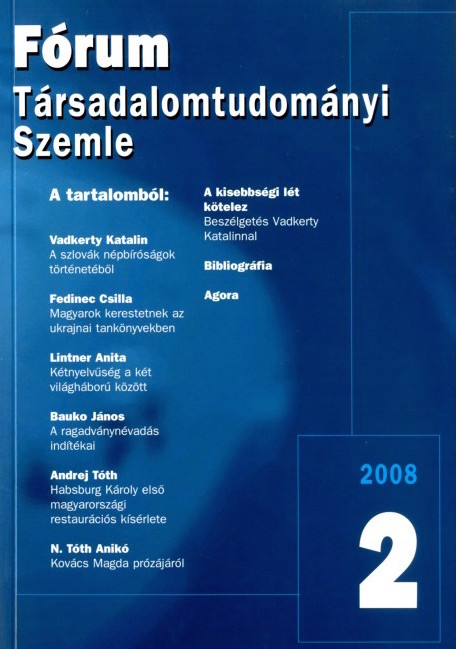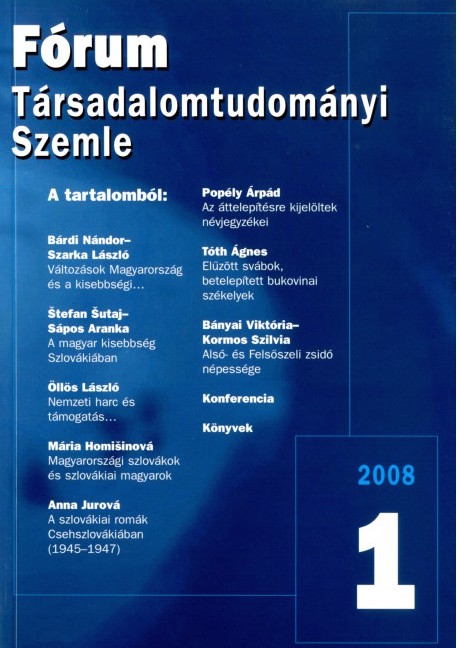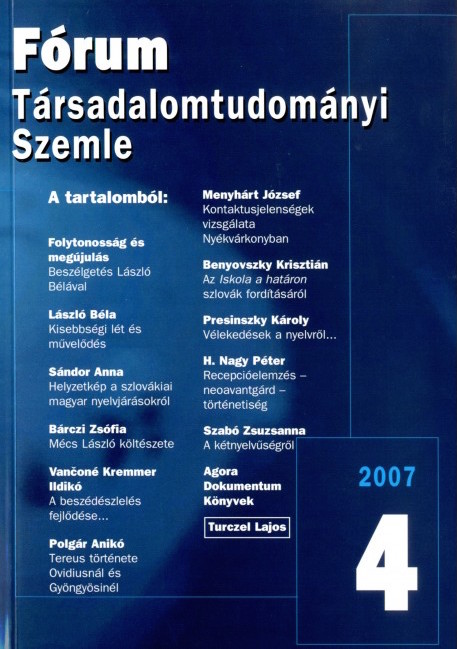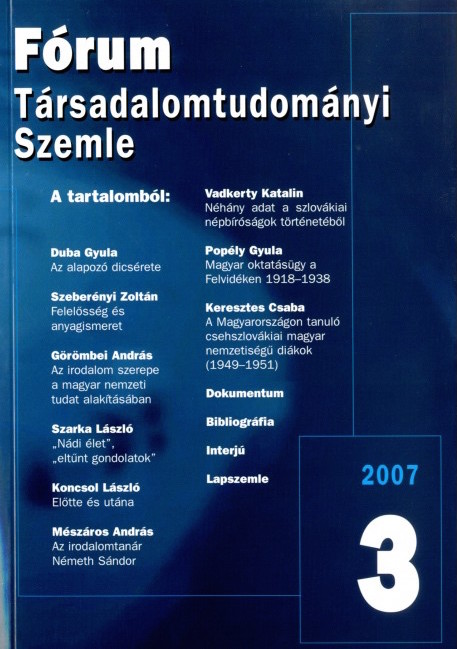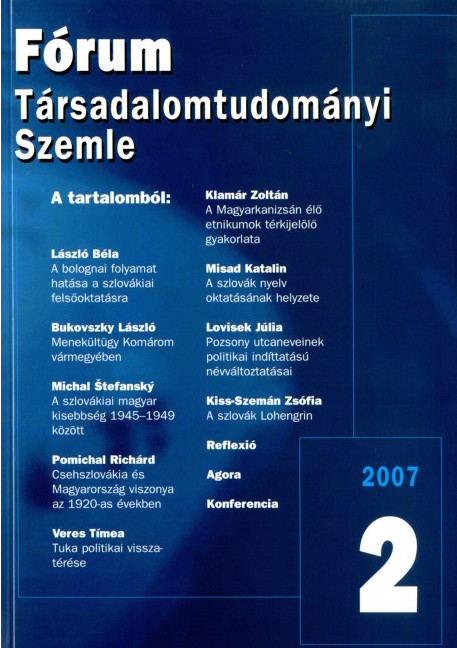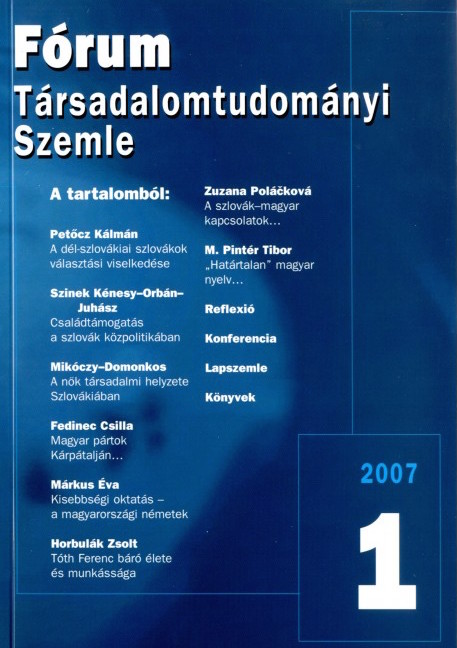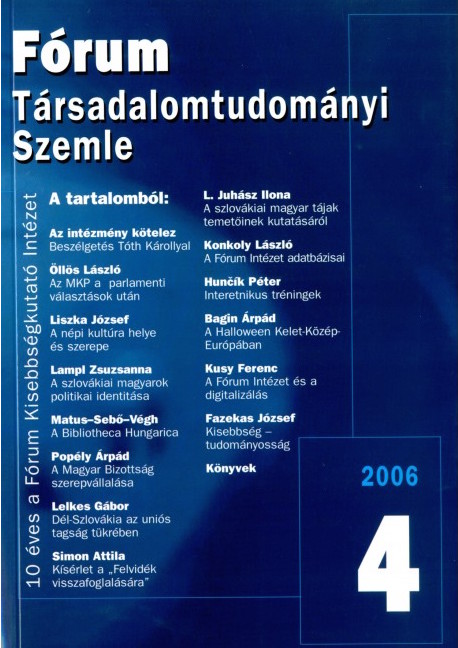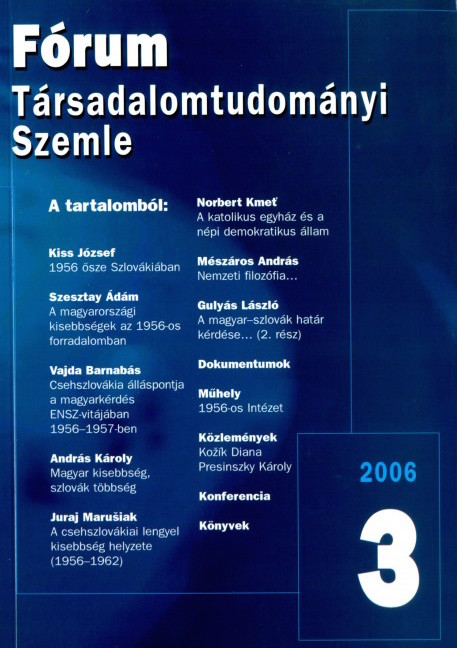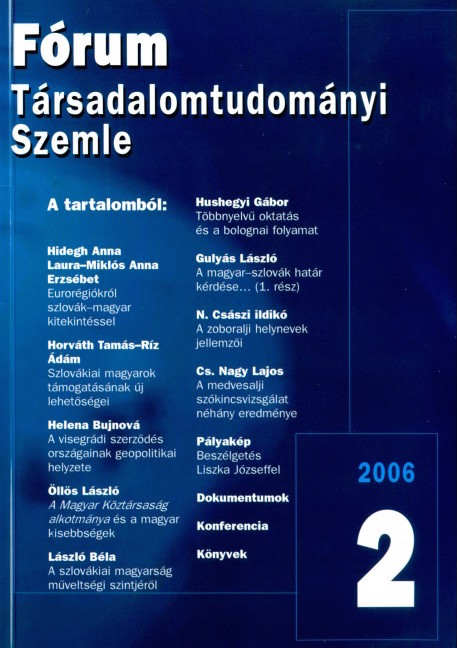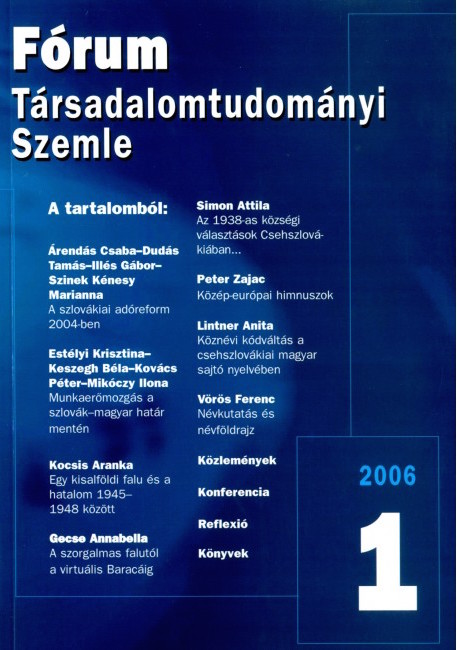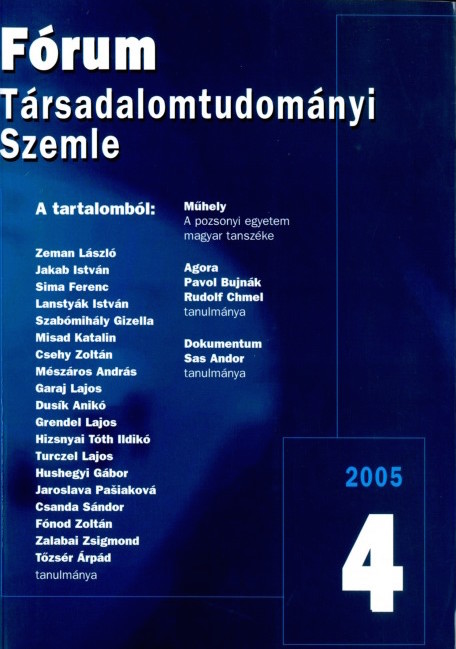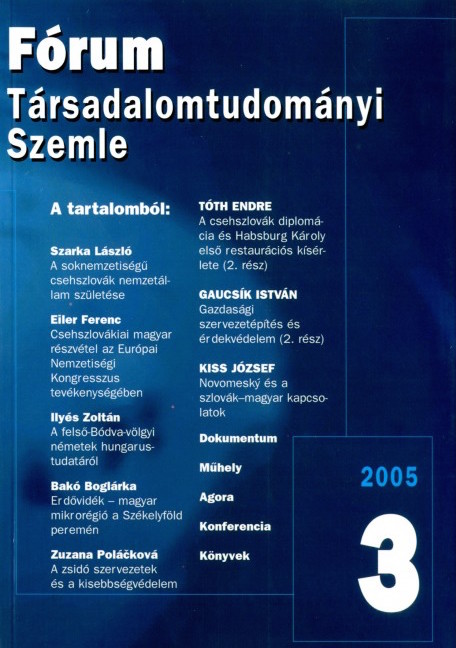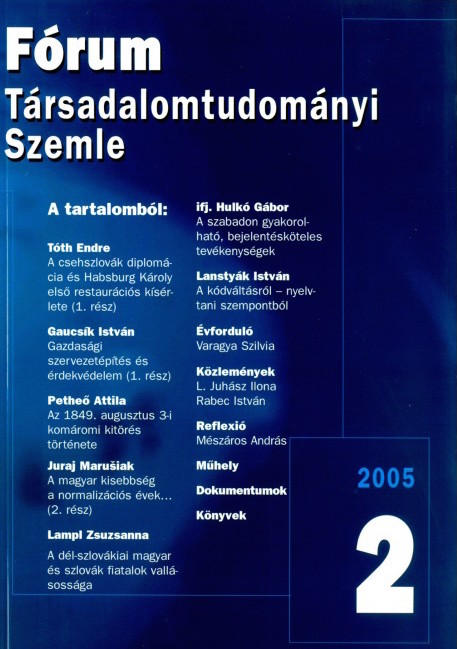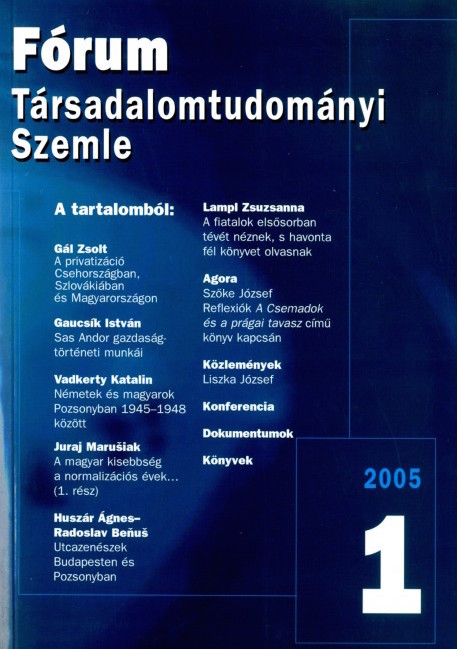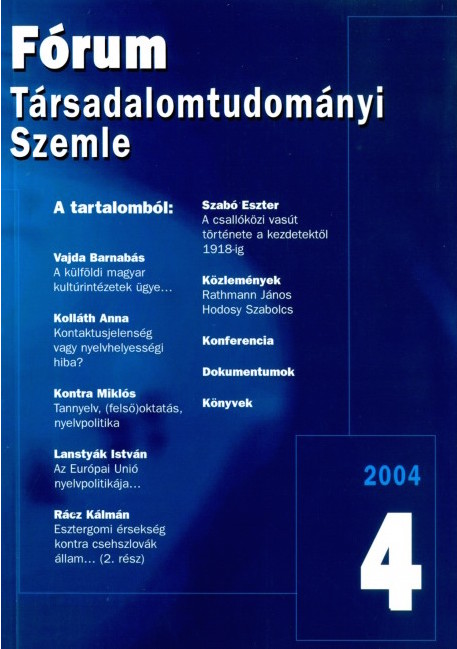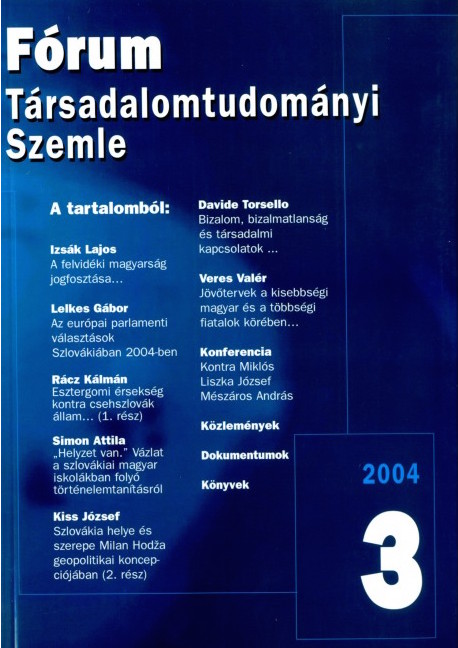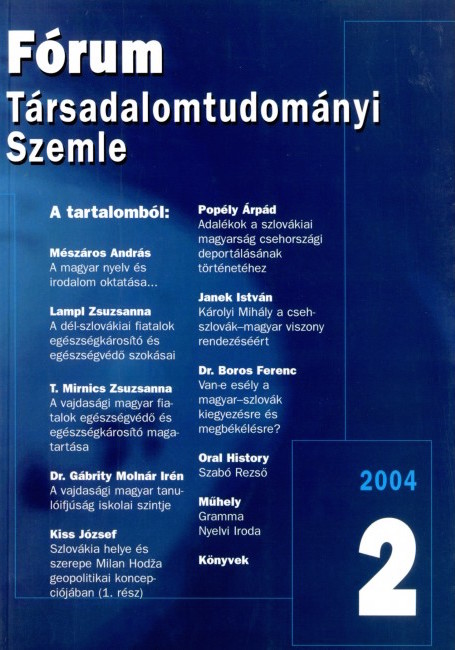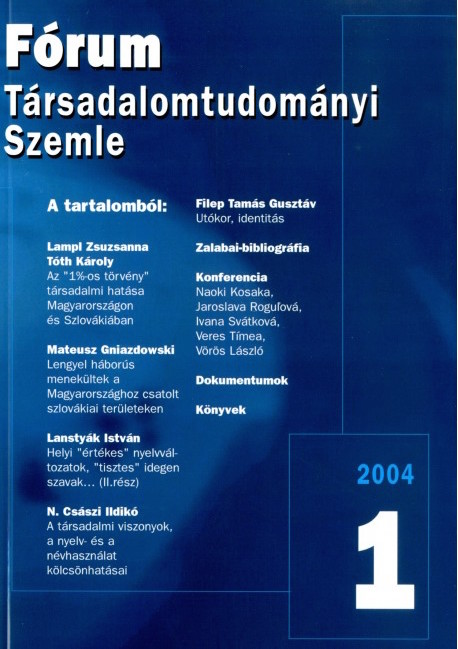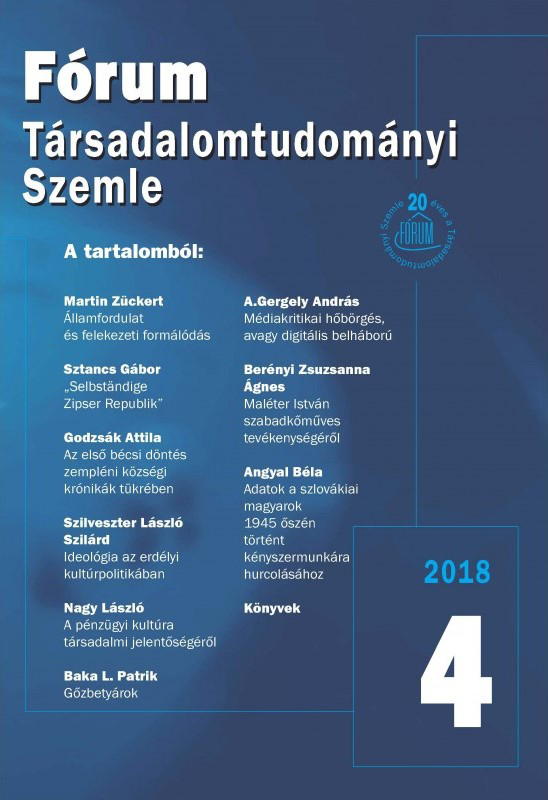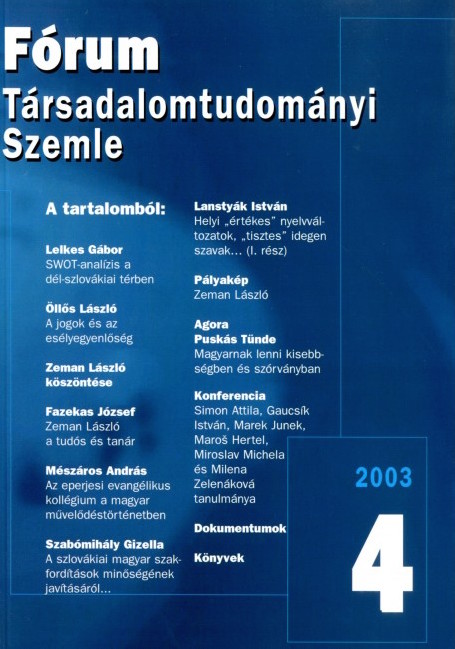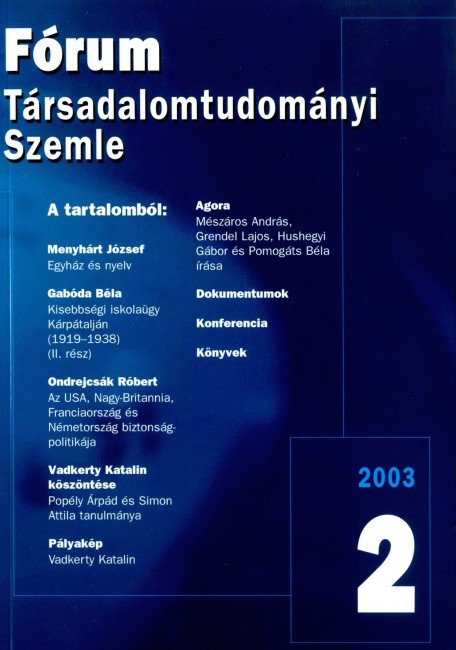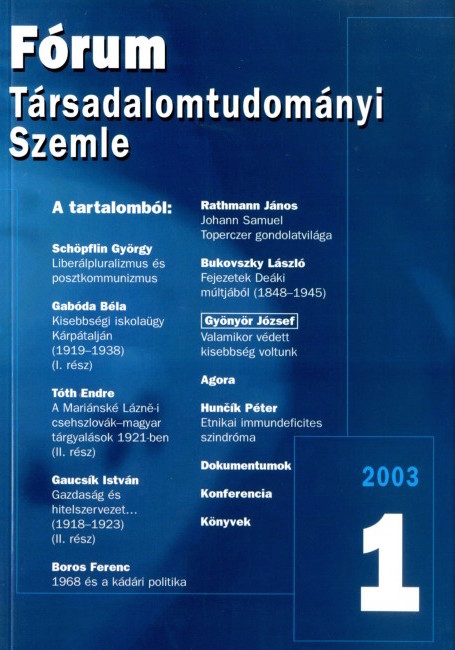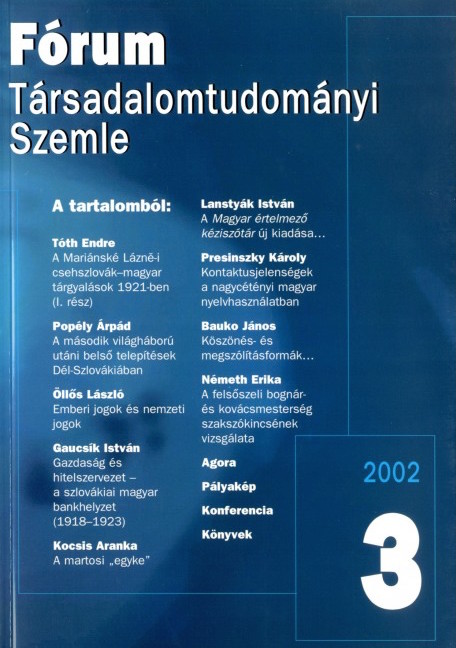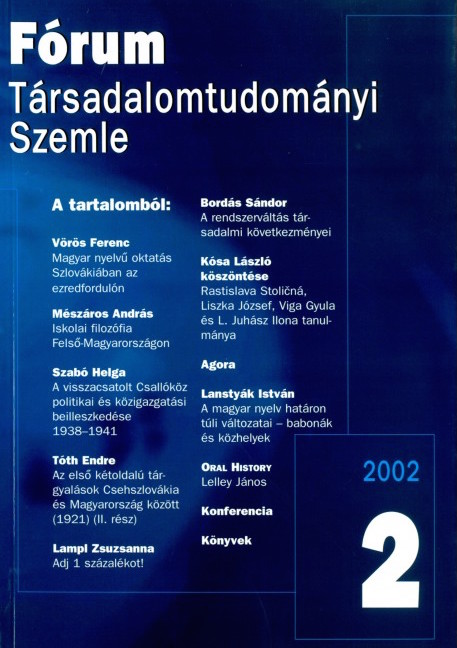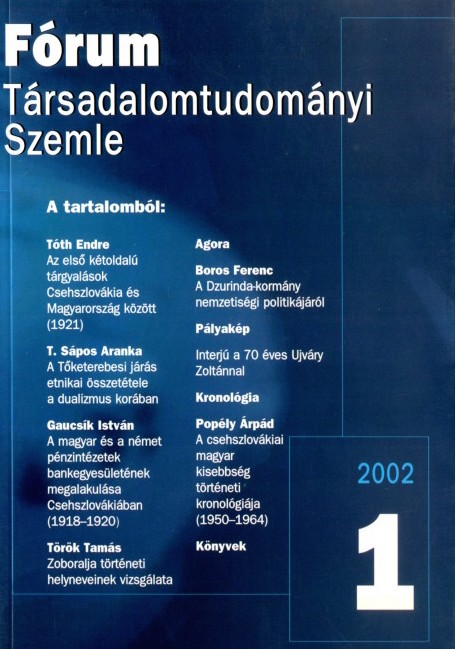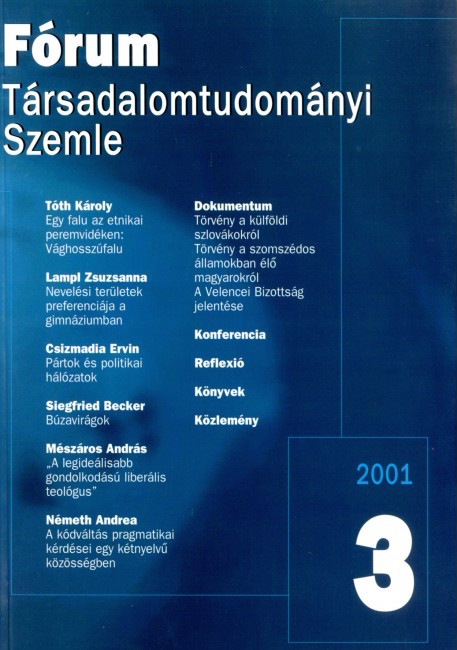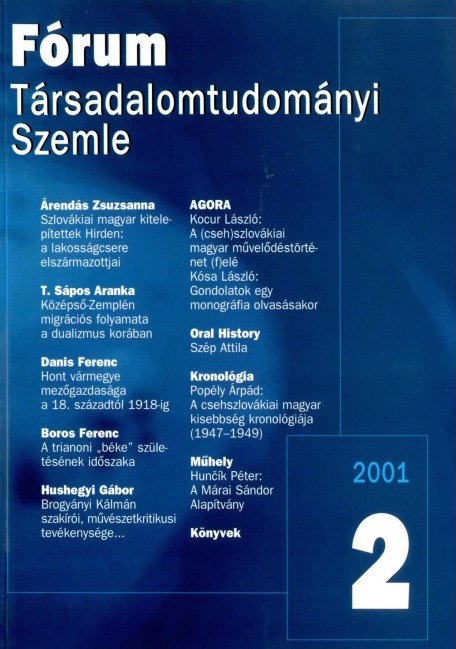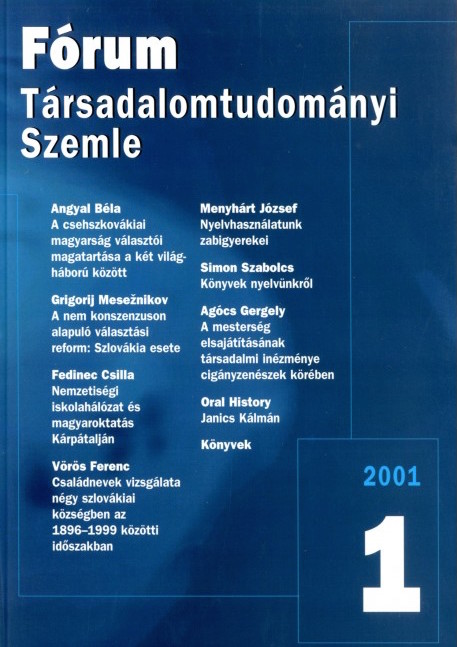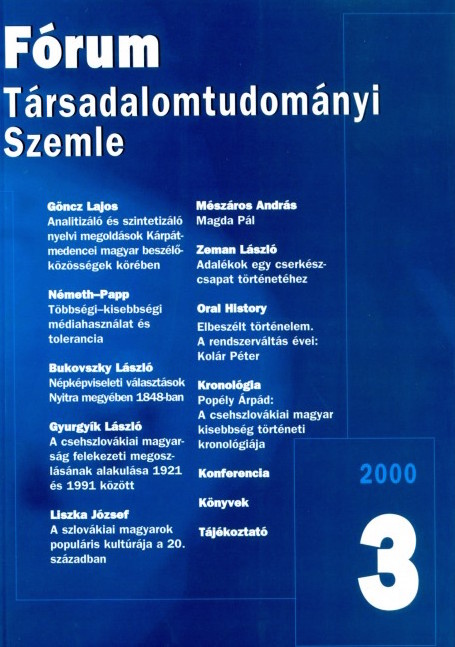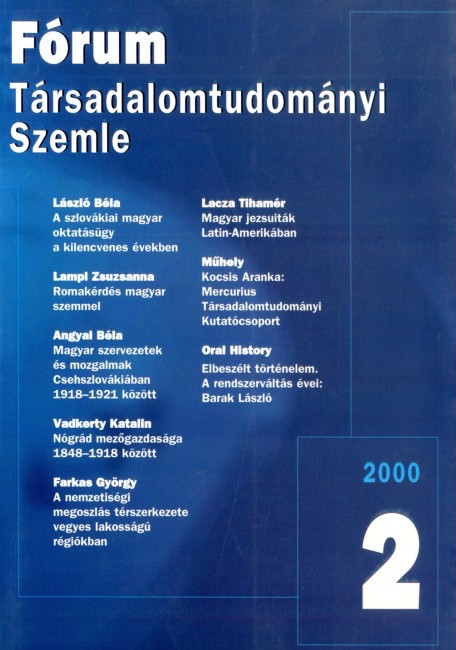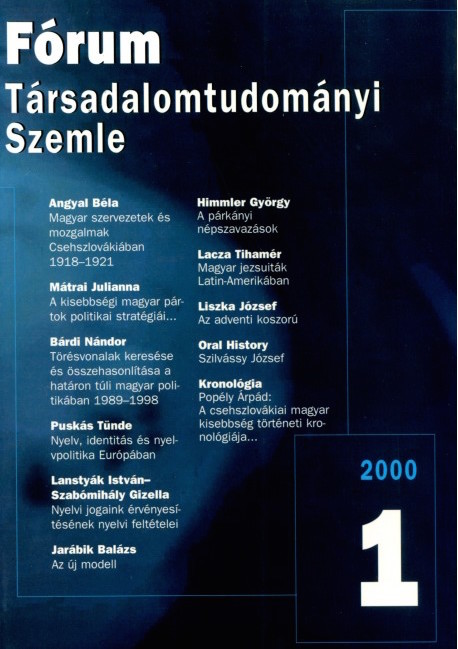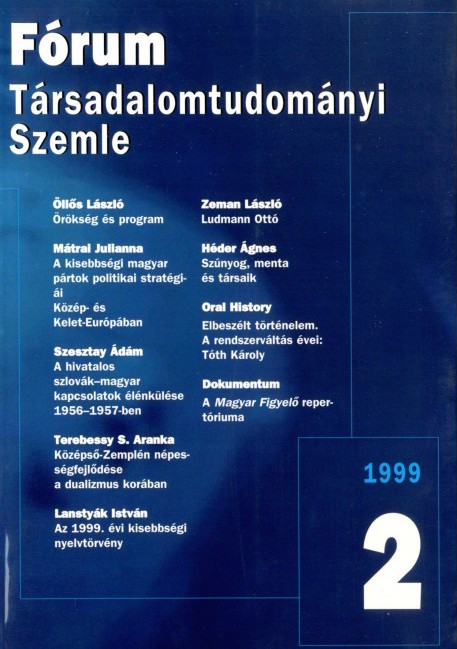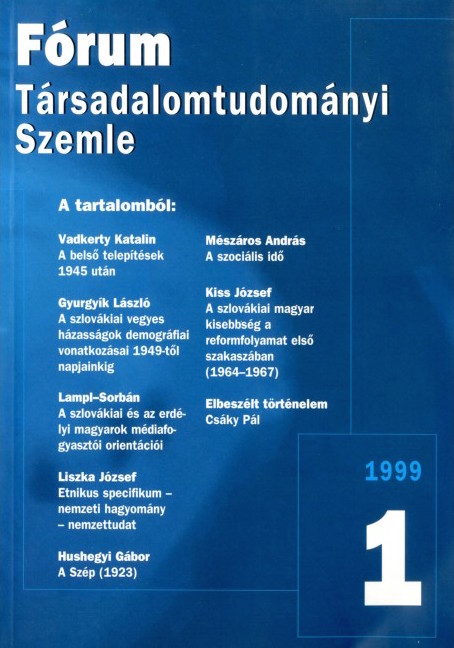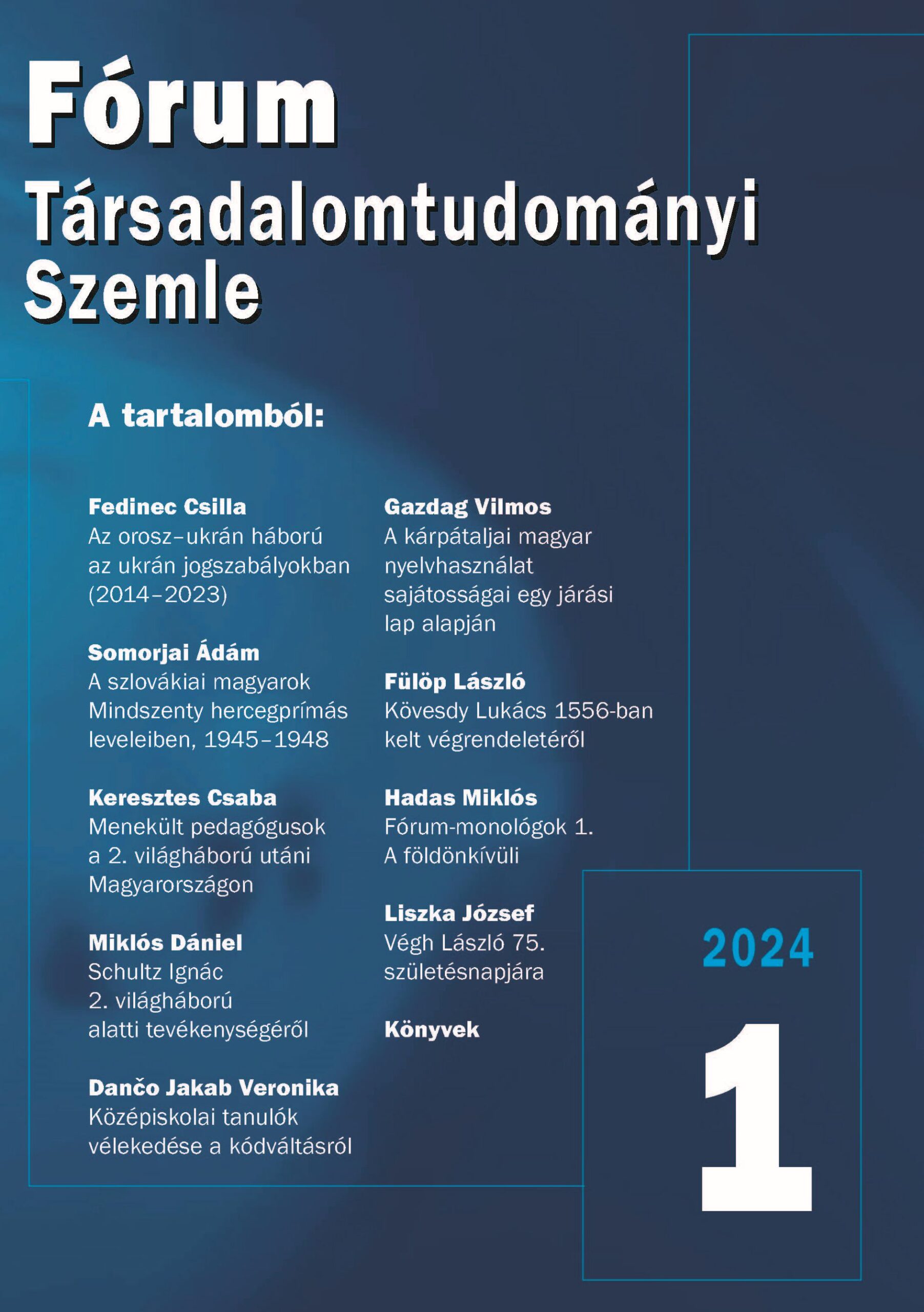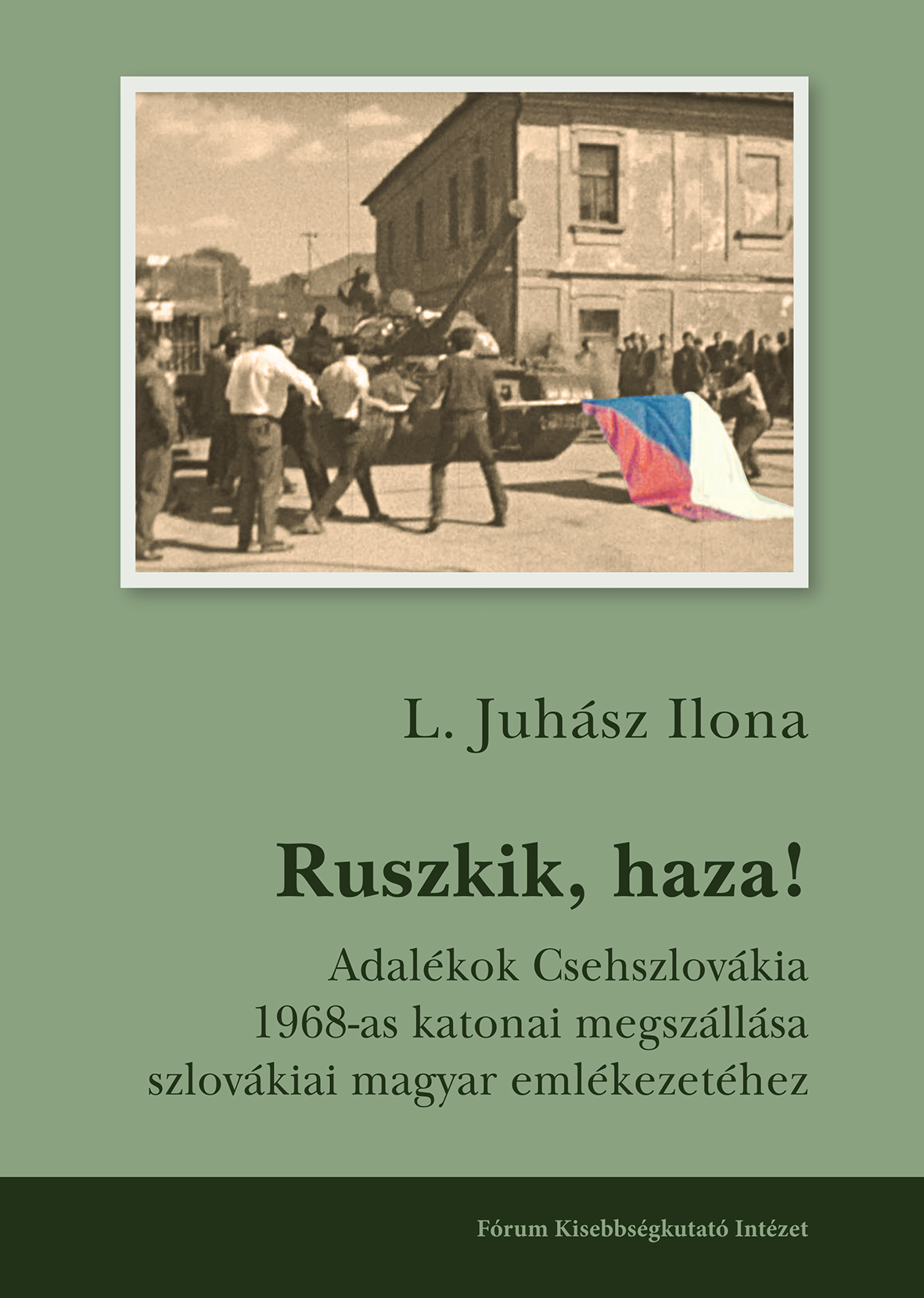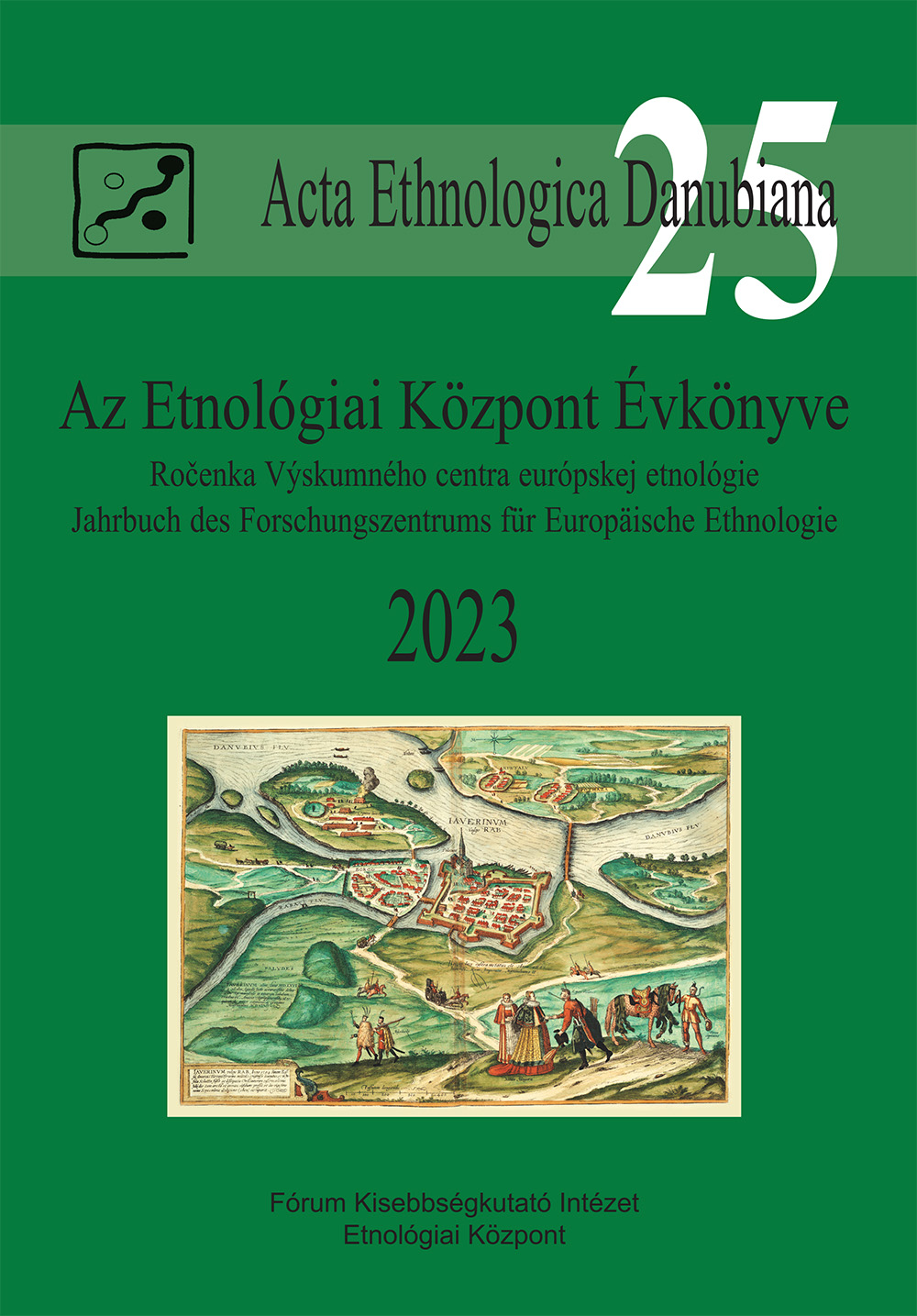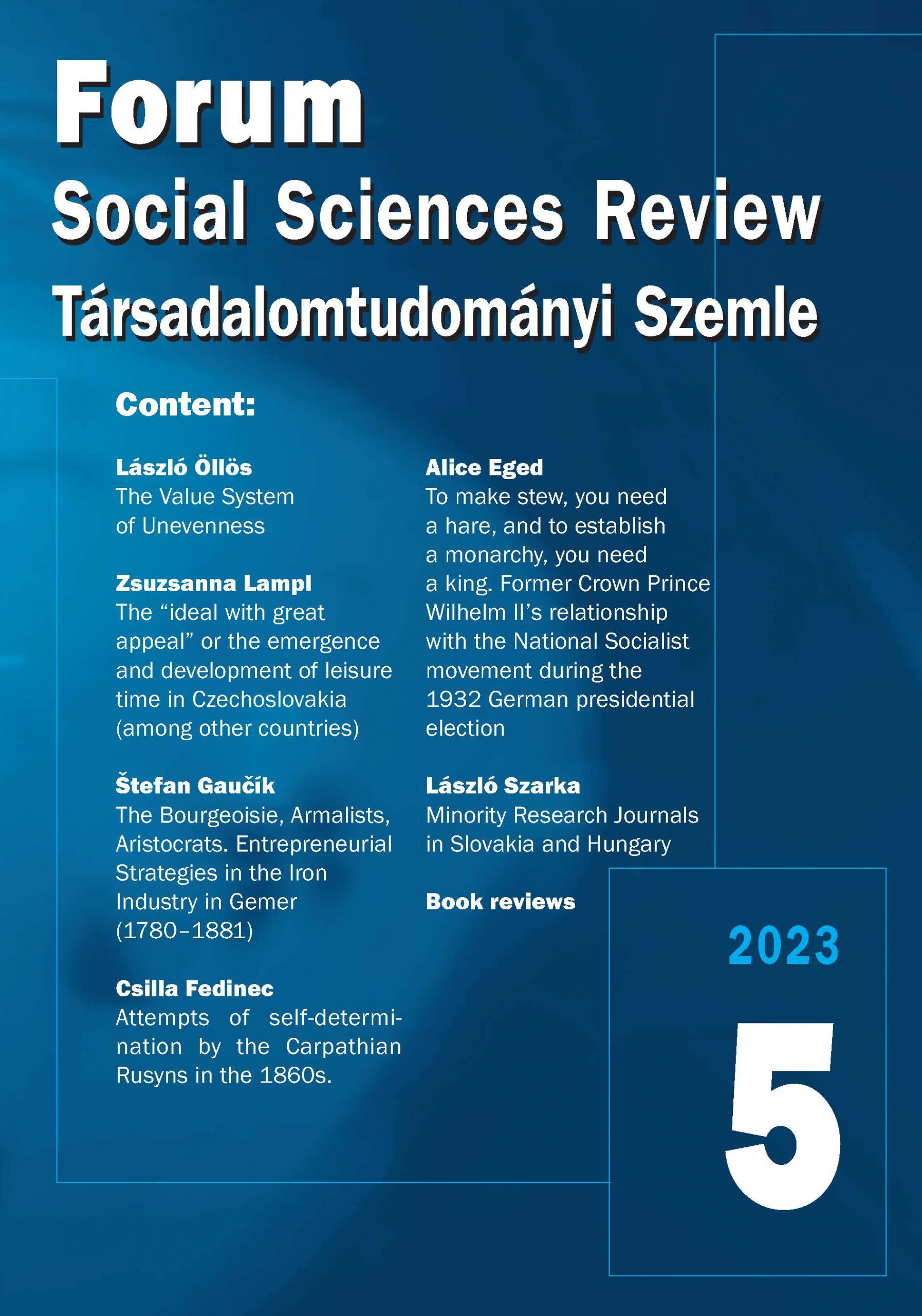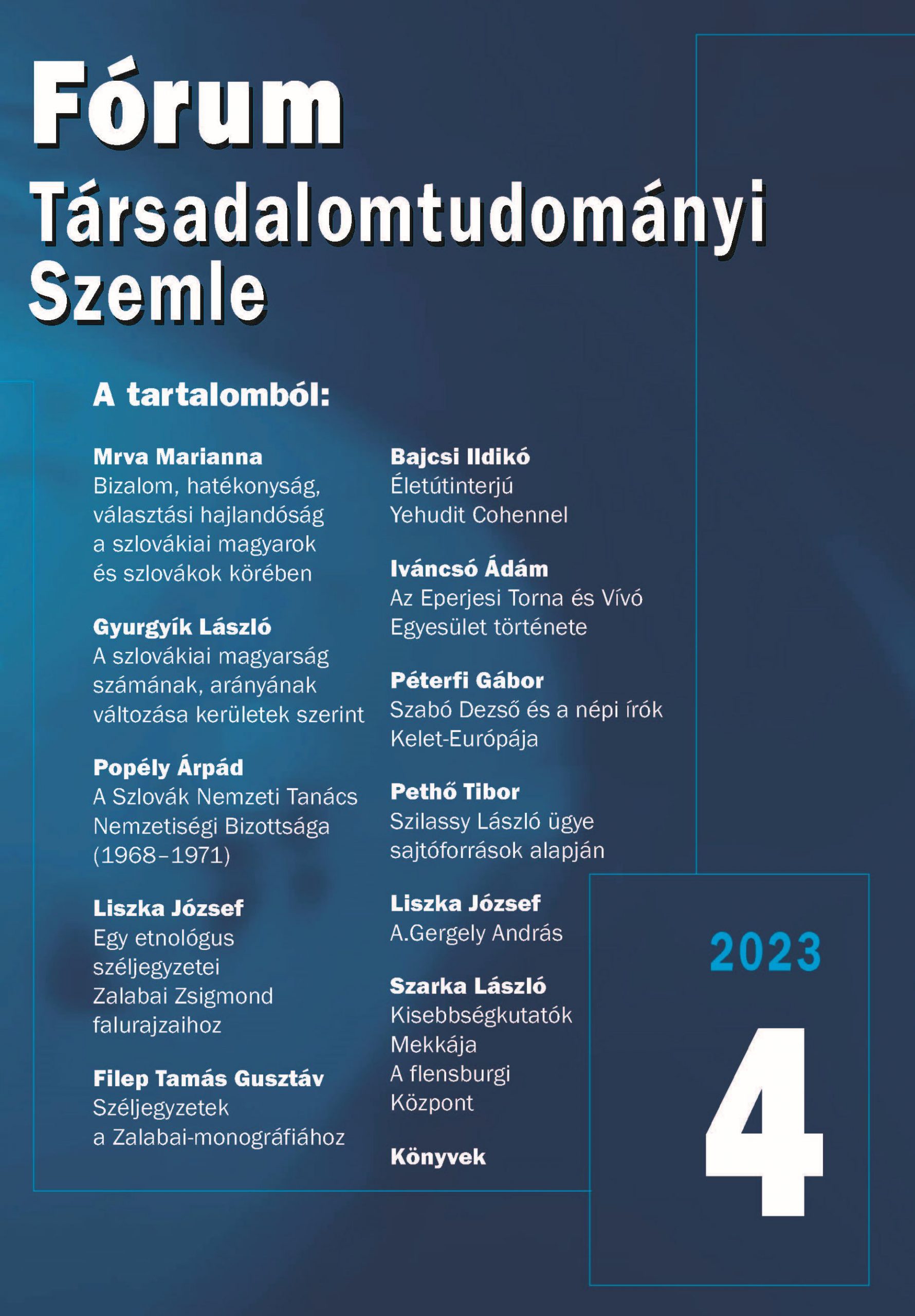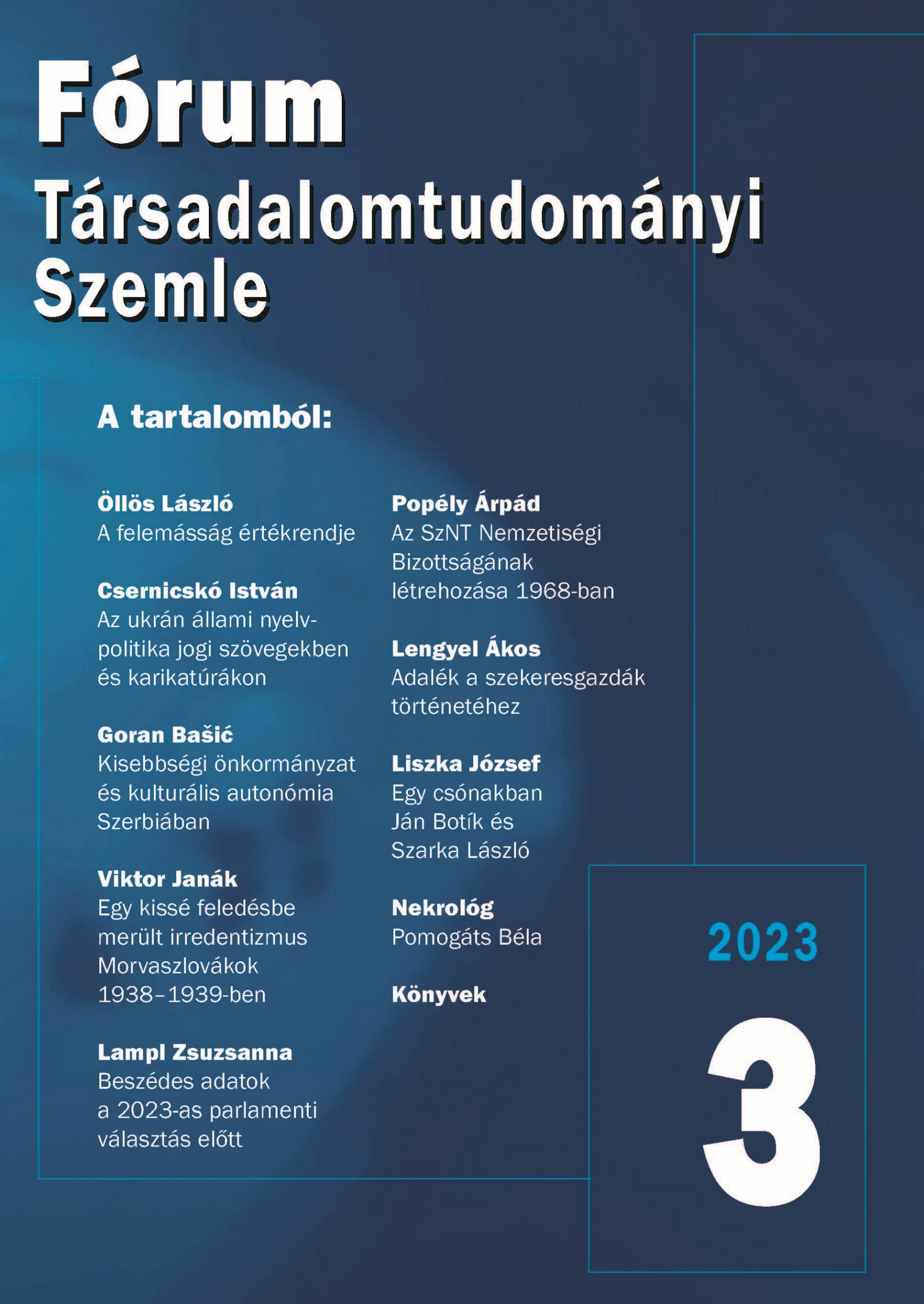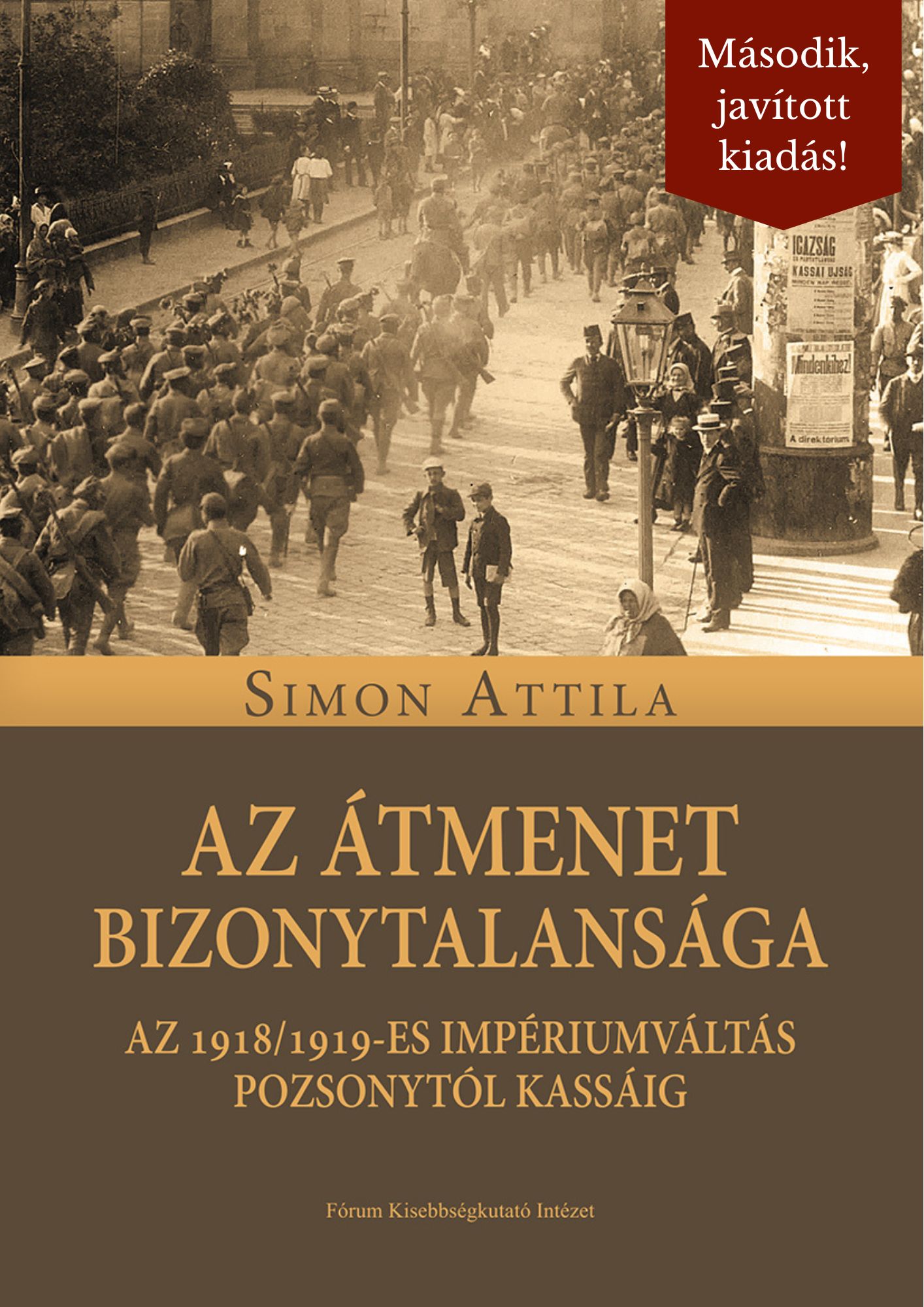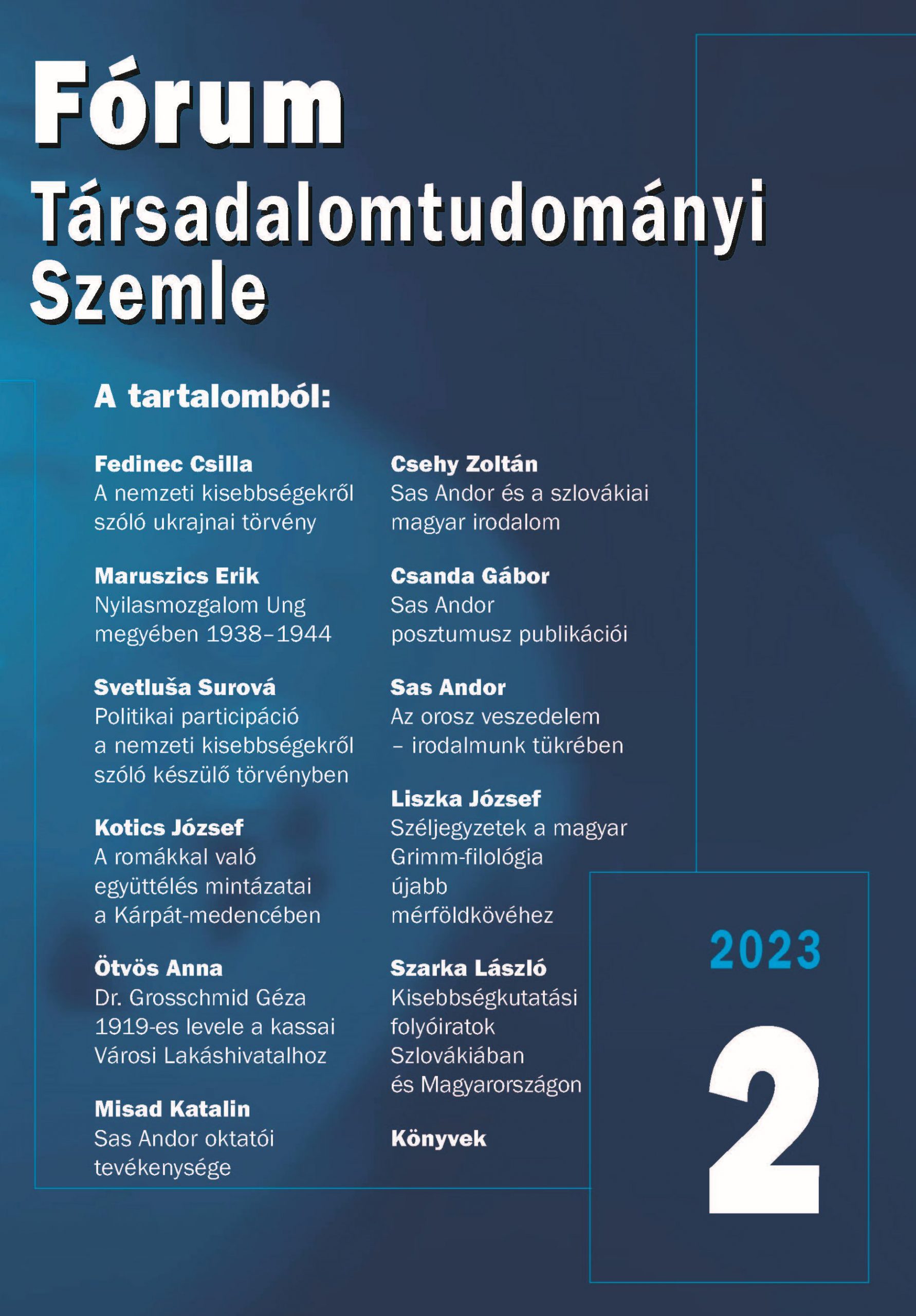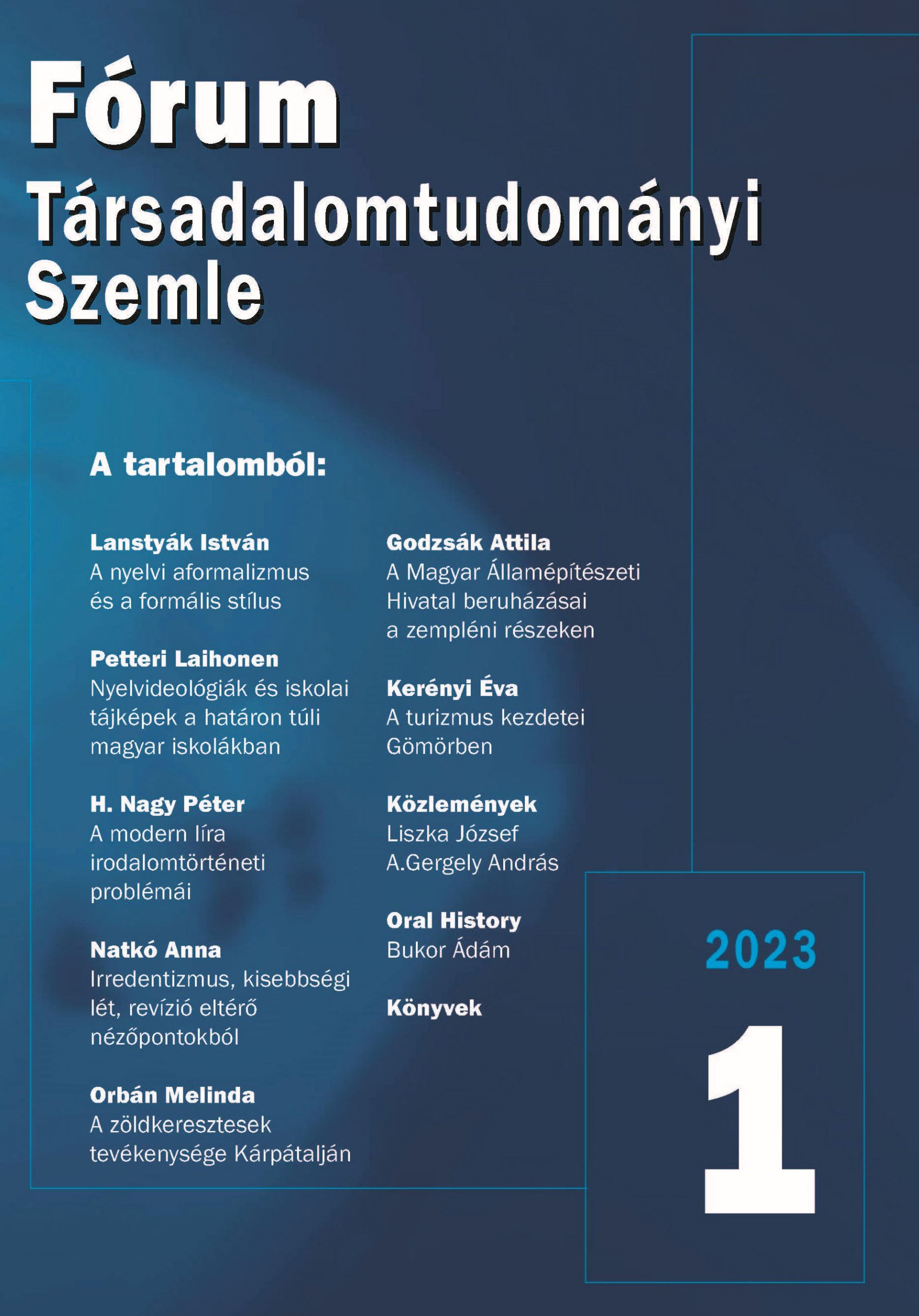The RussianãUkrainian War in Ukrainian Legislation (2014ã2023)
Russiaãs premeditated armed aggression against Ukraine began on February 2014 with a military operation by the Russian Armed Forces to seize part of Ukraineãs territory ã the Crimean peninsula ã and then provoke a war in Donbas. On 24 February 2022, Russia launched a full-scale war against Ukraine after that the Russian President announced the start of a so-called ãspecial military operationã under the pretext of carrying out the so-called ãdemilitarisation and denazification of Ukraineã. The Armed Forces of Ukraine, territorial defence forces and Ukrainian citizens thwarted the Kremlinãs plans to launch a ãblitzkriegã, seize Kyiv and key cities and change the government in Ukraine. This study presents some aspects of Ukrainian legislation related to the war against Ukraine since 2014.
The Hungarians in Slovakia in the letters of Prince Primate Mindszenty to the Western Heads of State, 1945ã1948. Research report
Jû°zsef Mindszenty regularly wrote letters to Pope Pius XII, to British diplomats between 1945 and 1948, as well as to cardinals in the US, Britain and New Zealand. His letters and telegrams protesting the plight of the Hungarians in Czechoslovakia after 1945, their forced Slovakisation and deportation to the Czech Republic, are prominent among these letters. This was prompted by his duties as county archpastor, as the ecclesiastical superior of the Esztergom archdiocese north of the Danube, and by his status as archbishop-metropolitan and prince primate. In our paper we attempt to summarise the relevant material from the period between 1945 and 1948: 33 of the 118 Mindszenty letters we have found deal with his efforts on behalf of the Hungarian community in Czechoslovakia.
Refugee Teachers in Post-world War II Hungary, With Special Reference to Those From the Newly-Formed Czechoslovakia
After the Second World War, a significant number of refugees arrived in Hungary, most of them expelled from their homelands or places of service by the neighbouring states. Among them, the case of the pedagogues was peculiar: they had to leave almost everything behind and find a new place to live and start all over again, but they were also lucky compared to their colleagues in the civil service, as they were temporarily assigned to the posts of their colleagues who had left, died, or were taken prisoner of war, and then were permanently assigned to the posts during the period of the organisation of the eight-grade school. The situation of refugee pedagogues from Czechoslovakia was even more peculiar.
Activism in any Direction. A Sketch of IgnûÀc Schultzãs Activities During the Second World War
A well-known public figure of the first Czechoslovak state, IgnûÀc Schultz, who had emigrated from Hungary, was a representative of self-sacrificing activism. The political changes in the autumn of 1938 had an impact on his activities and living conditions as well. The present paper aims to provide some insights into Schultzãs activities during the Second World War, which can still be best described in terms of activism. The paper also seeks to draw attention to the fact that Schultz tried to remain an activist after the Second World War, but that, in an ideological reversal, he committed himself to Zionism, in the face of unfavourable political events in Czechoslovakia, and remained committed to the idea until his death in 1954.
High School Studentsã Perceptions of Code-Switching in a Bilingual Environment
The paper explores the opinions of two hundred Hungarian secondary school students in Slovakia on the code-switching between Hungarian as a minority language and Slovak as the state language. The results of the research show, on the one hand, that the students in the study have rather contradictory opinions about the code-switching; on the other hand, that students who have more experience with Slovak in everyday life are more accepting of the code-switching than students who have more limited contact with the state language. In many cases, the self-reported responses of code-switching-rejecting students are based on a language myth that conveys negative value judgements, due to the lack of knowledge of bilinguals and their use of the language.
Characterstics of the use of the Hungarian Language in Transcarpatihia at the Turn of the 1980s and 1990s, Based on the Materials of the VûÑrûÑs ZûÀszlû° District Newspaper
The turn of the 1980s and 1990s brought a number of changes for the whole Soviet world, including the Hungarian community in Transcarpathia, which obviously had an impact on the language of the press, as elements of political or economic jargon appear in the daily press just as much as the language of sport or the argot. The majority of linguists agree that press language is a mirror of language use in which linguistic changes are detectable and traceable almost immediately. In this paper, we have attempted to present an overview of the 1989ã1990 issues of the Berehovo District Council newspaper, the VûÑrûÑs ZûÀszlû° [Red Flag]ãi.e. more than 300 issues and more than 1,200 pages of text for the two yearsãpresenting the major events and problems of the period, and the linguistic information related to them, especially the state language loanwords that appeared in the paper as a result of bilingualism.



